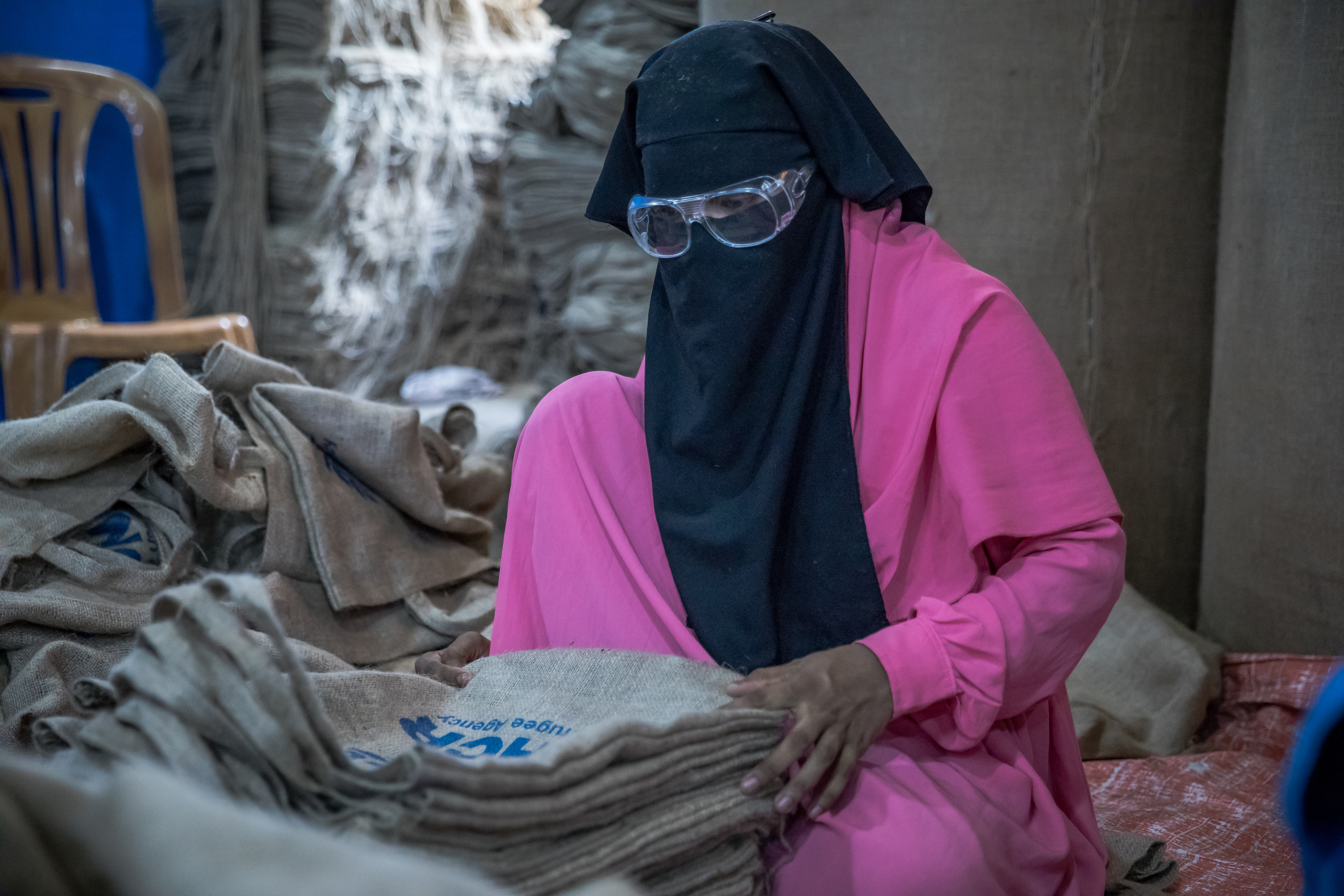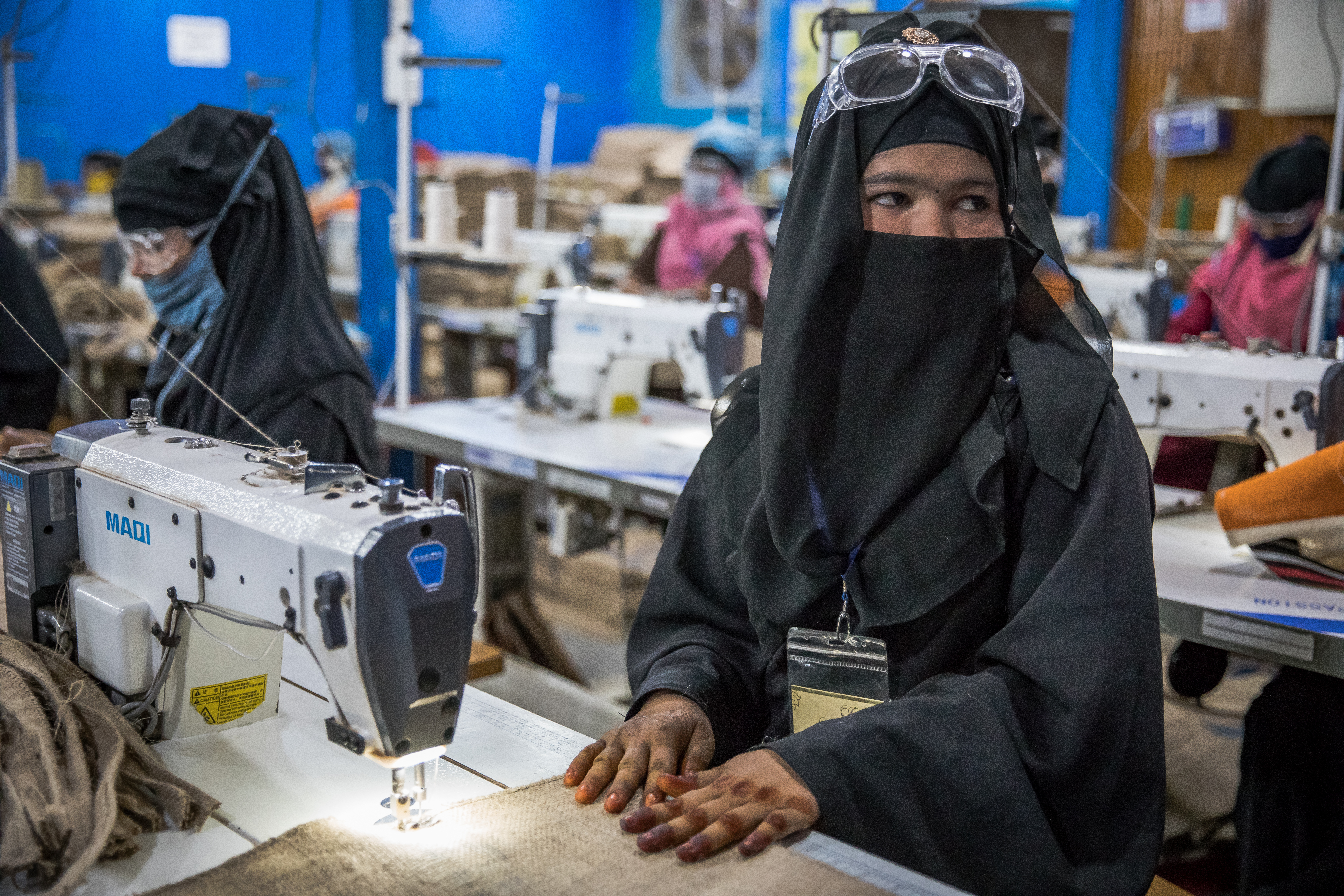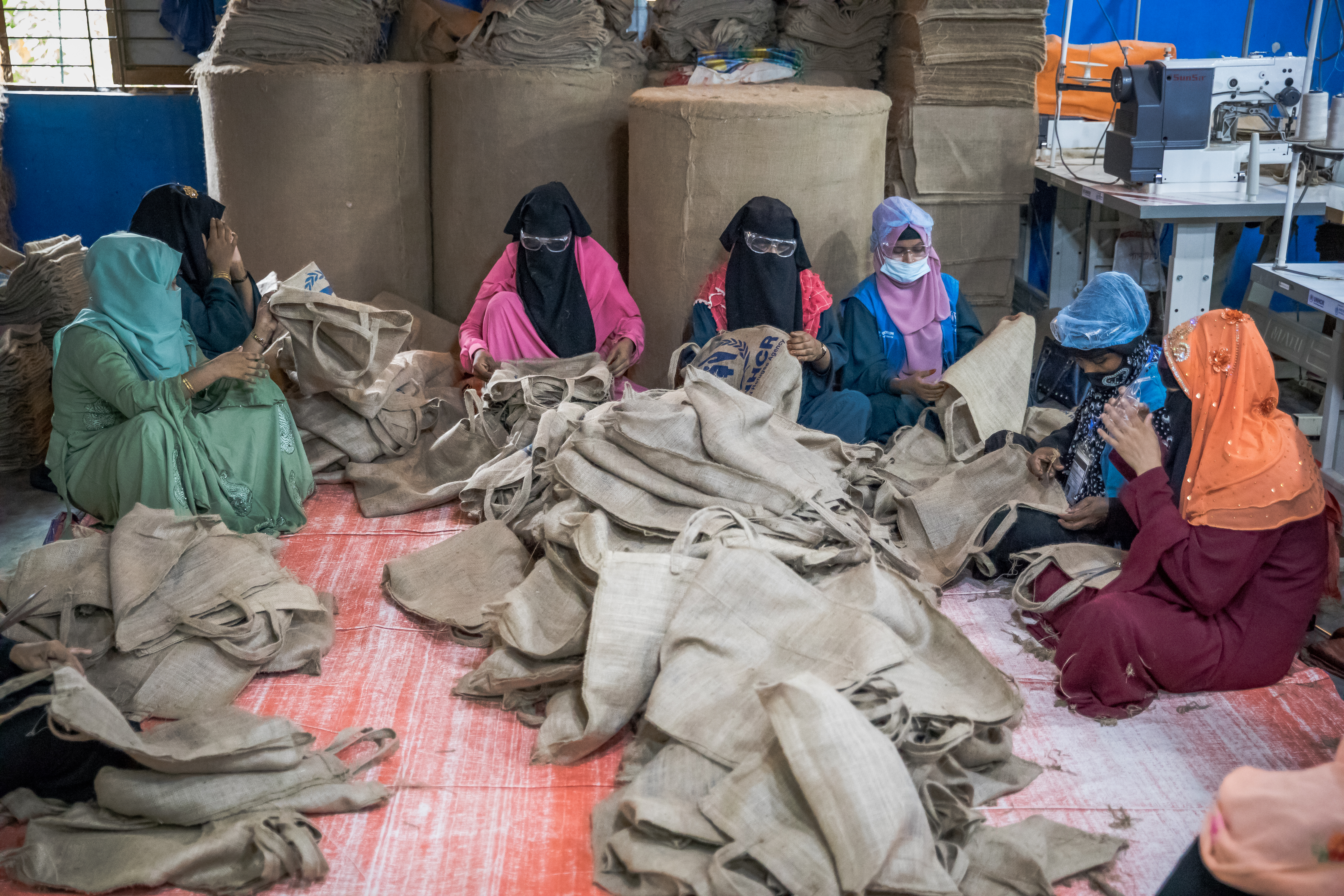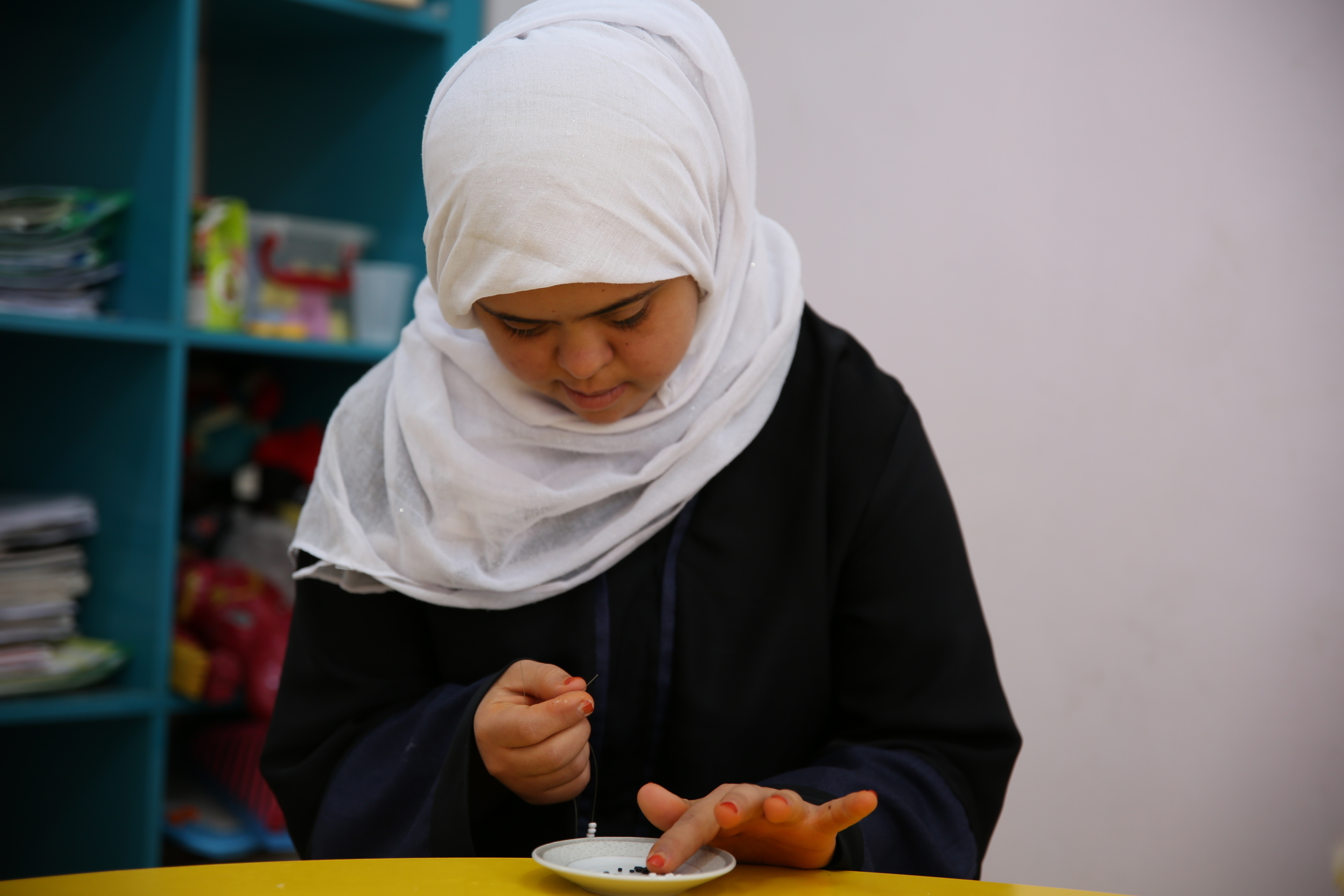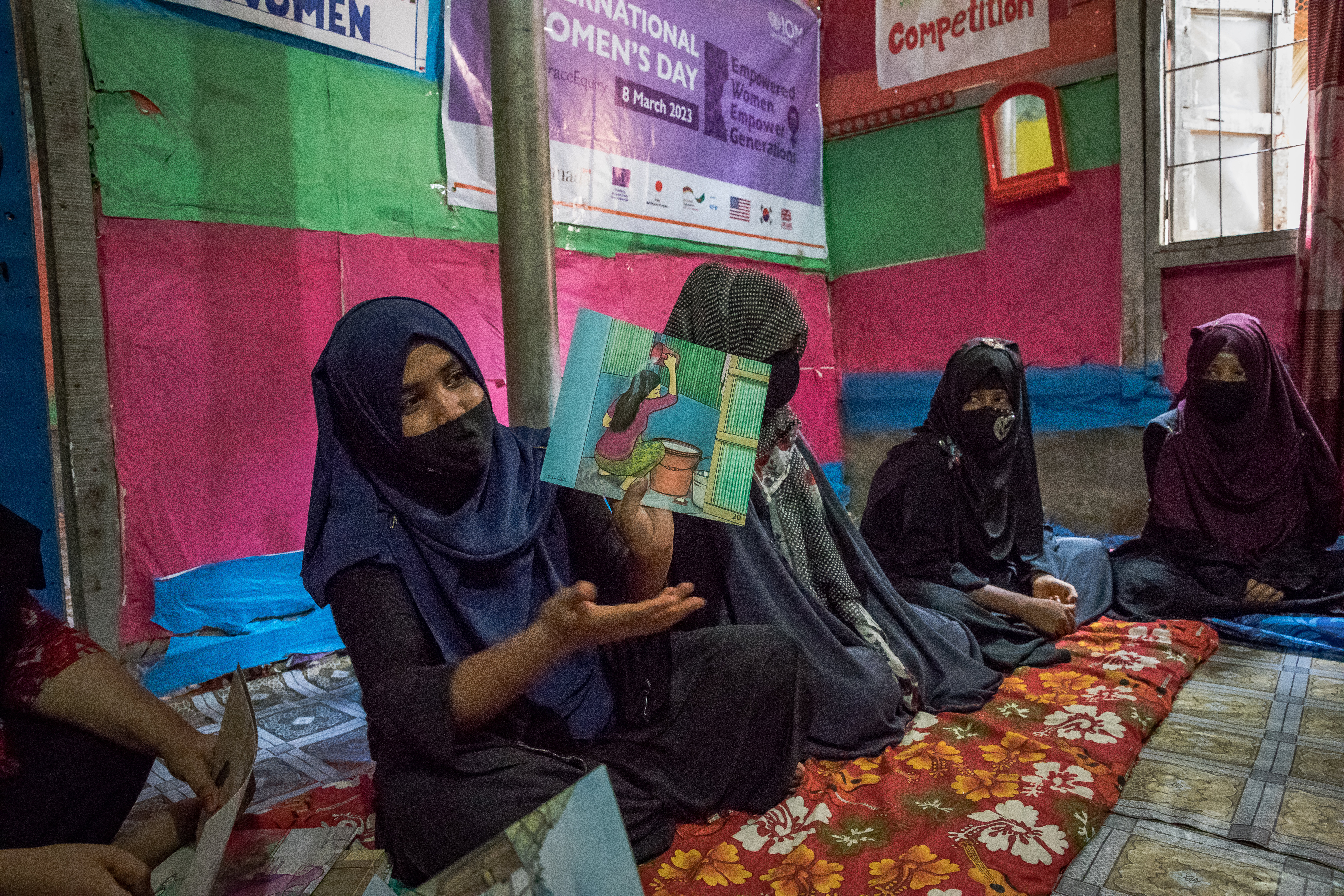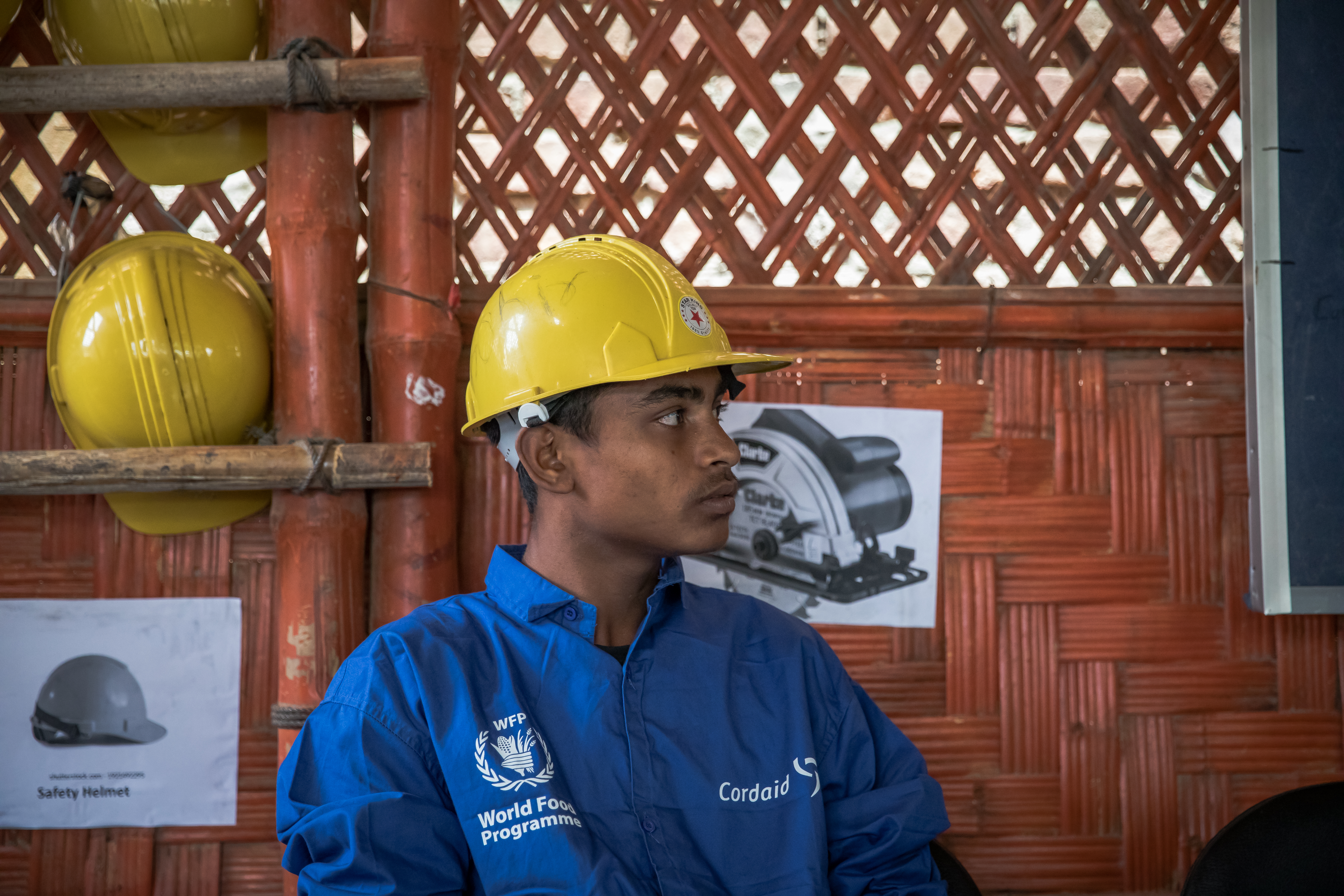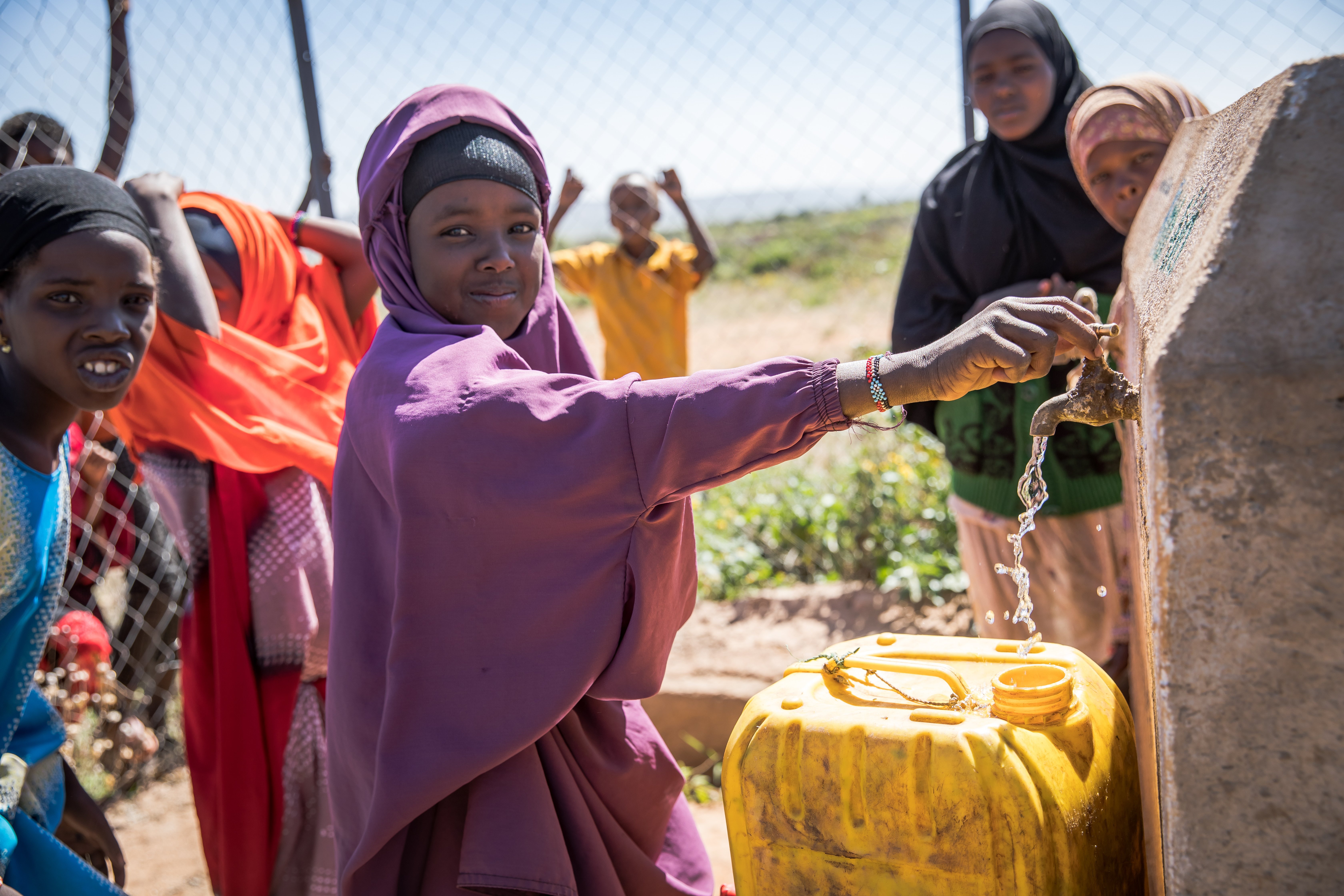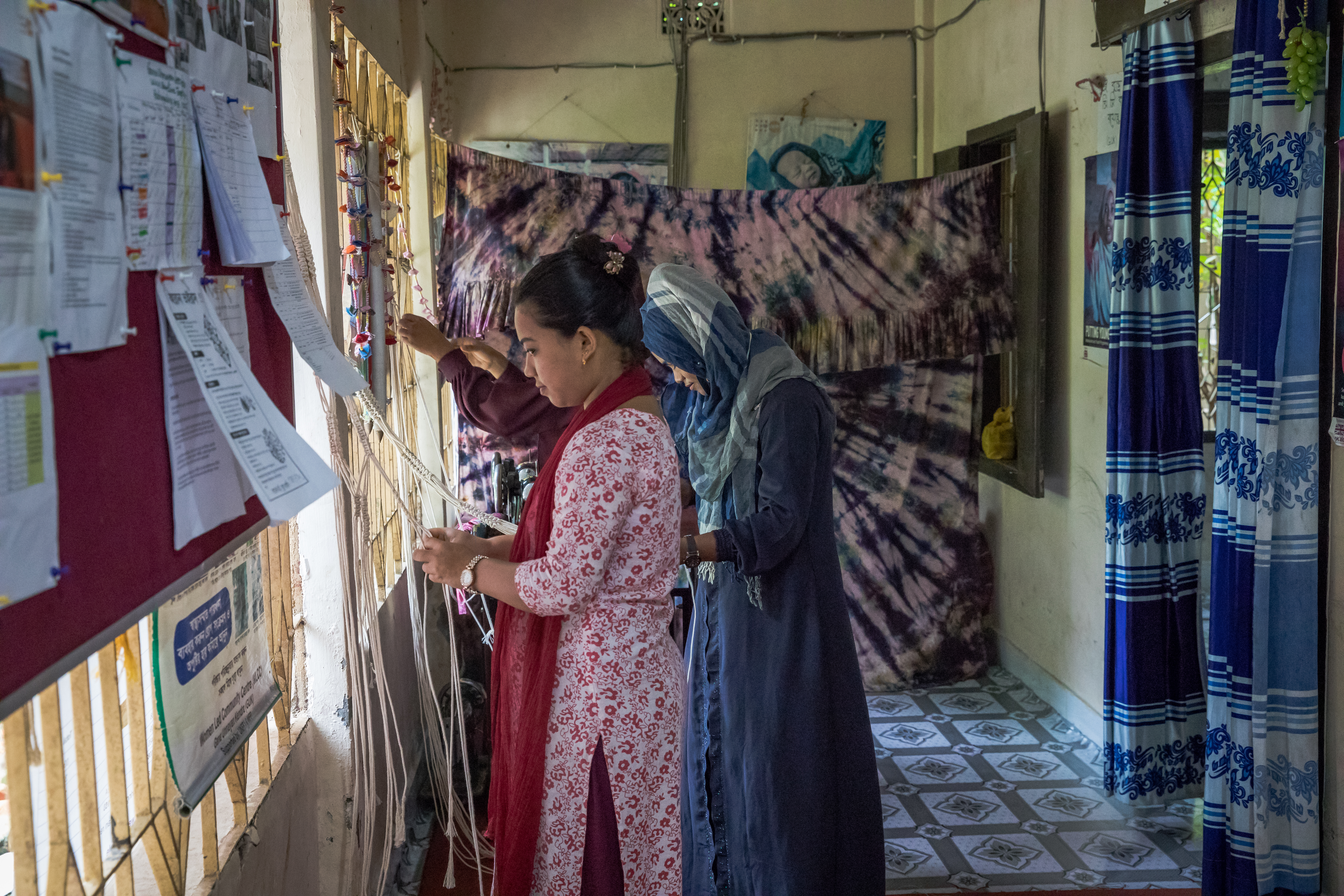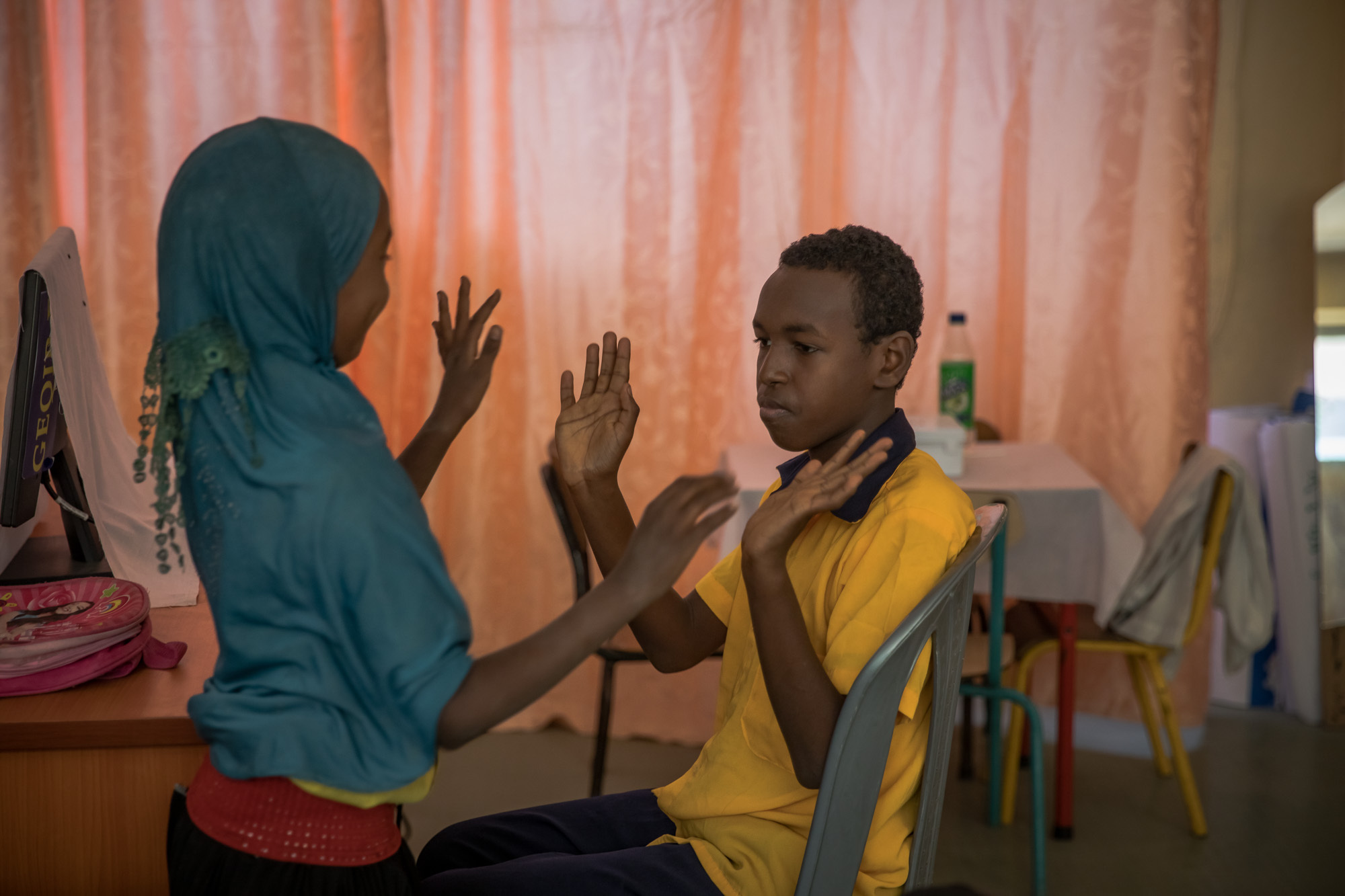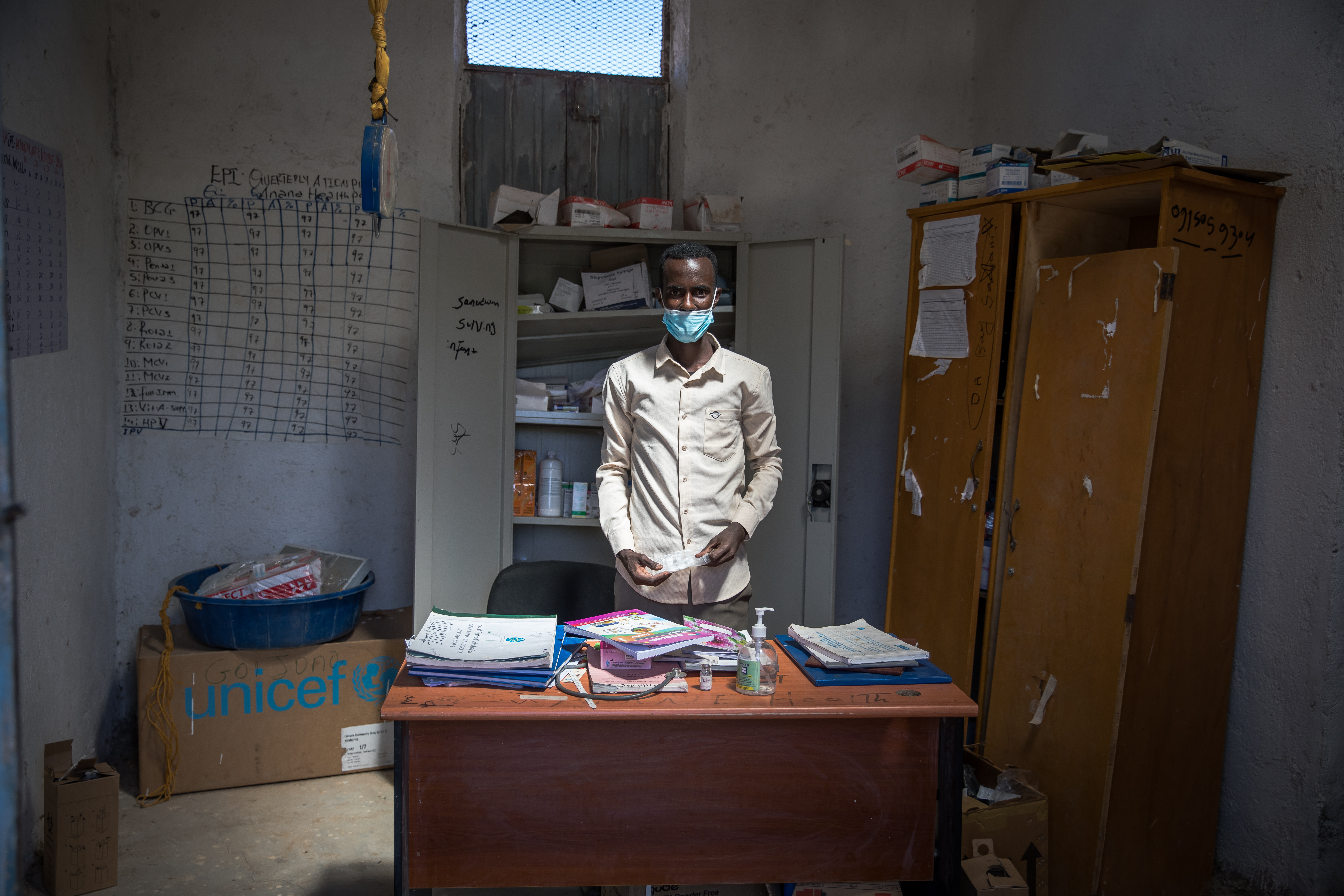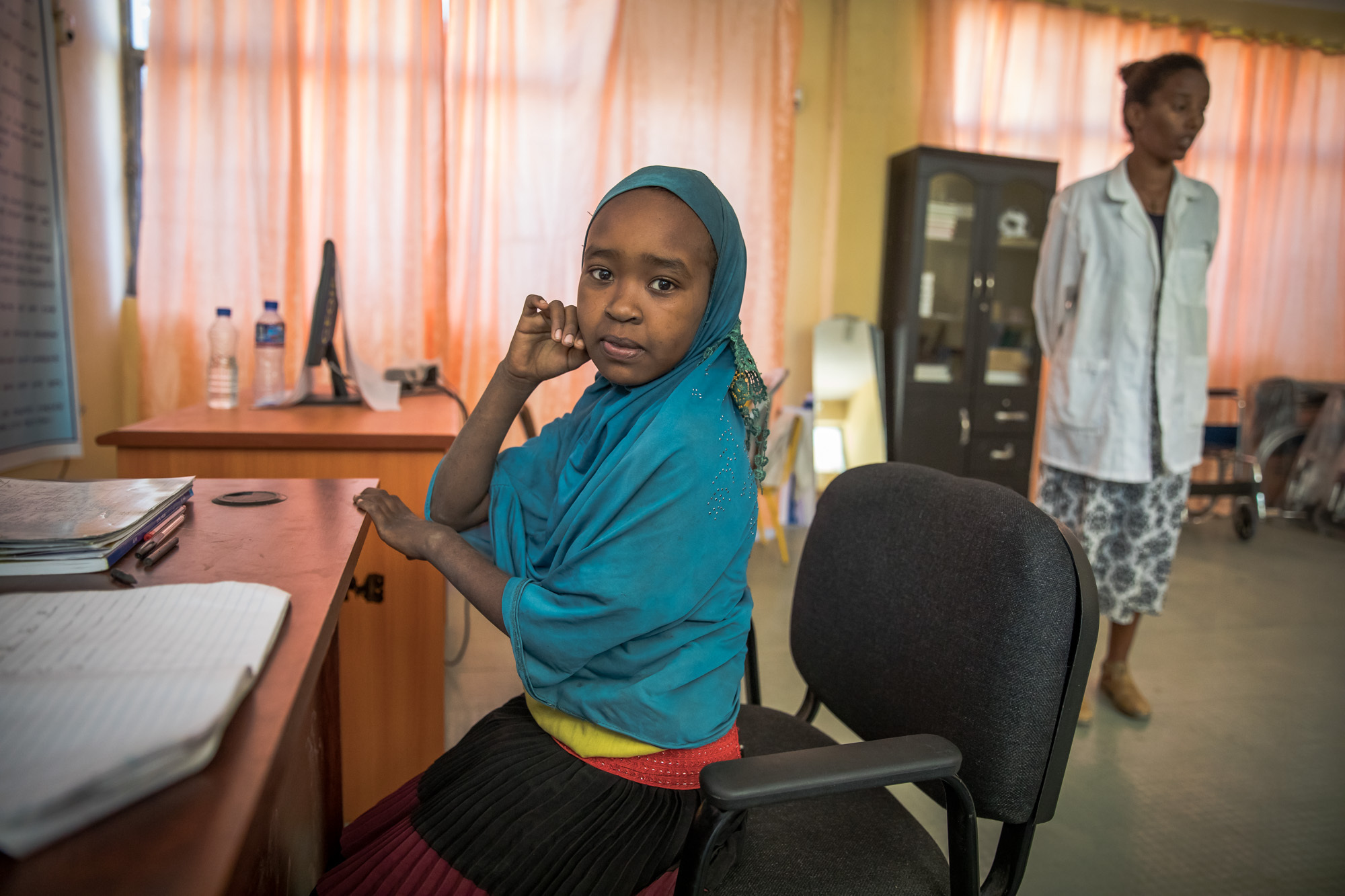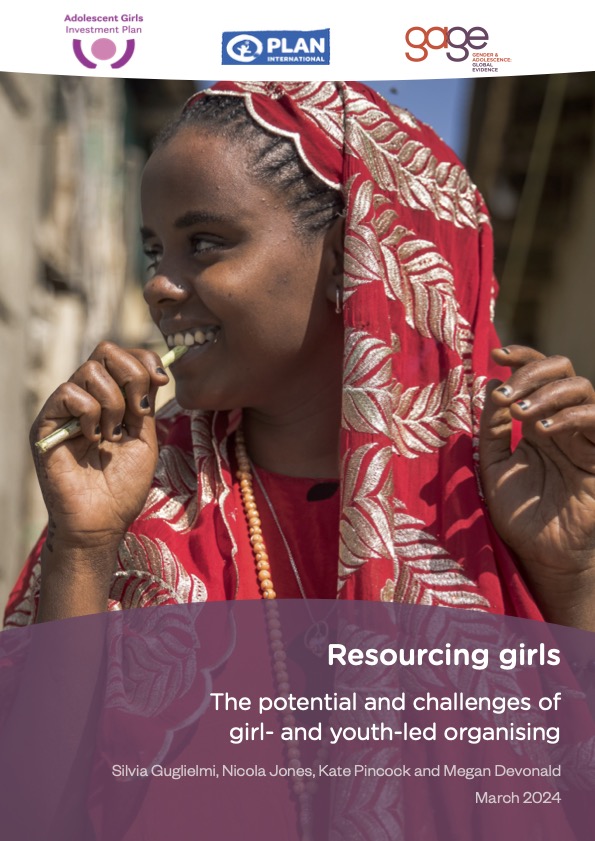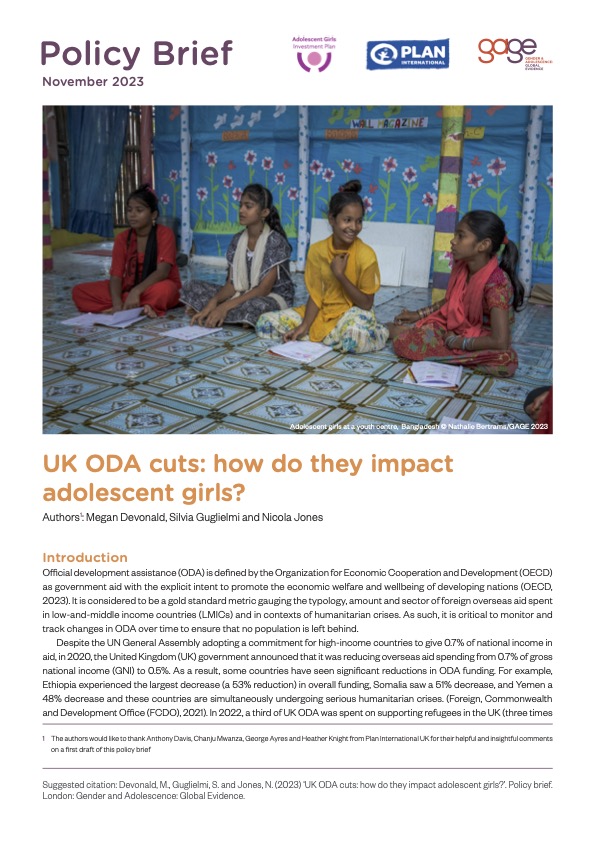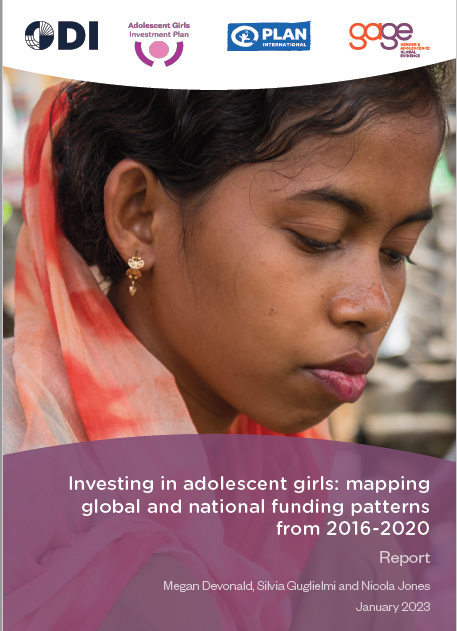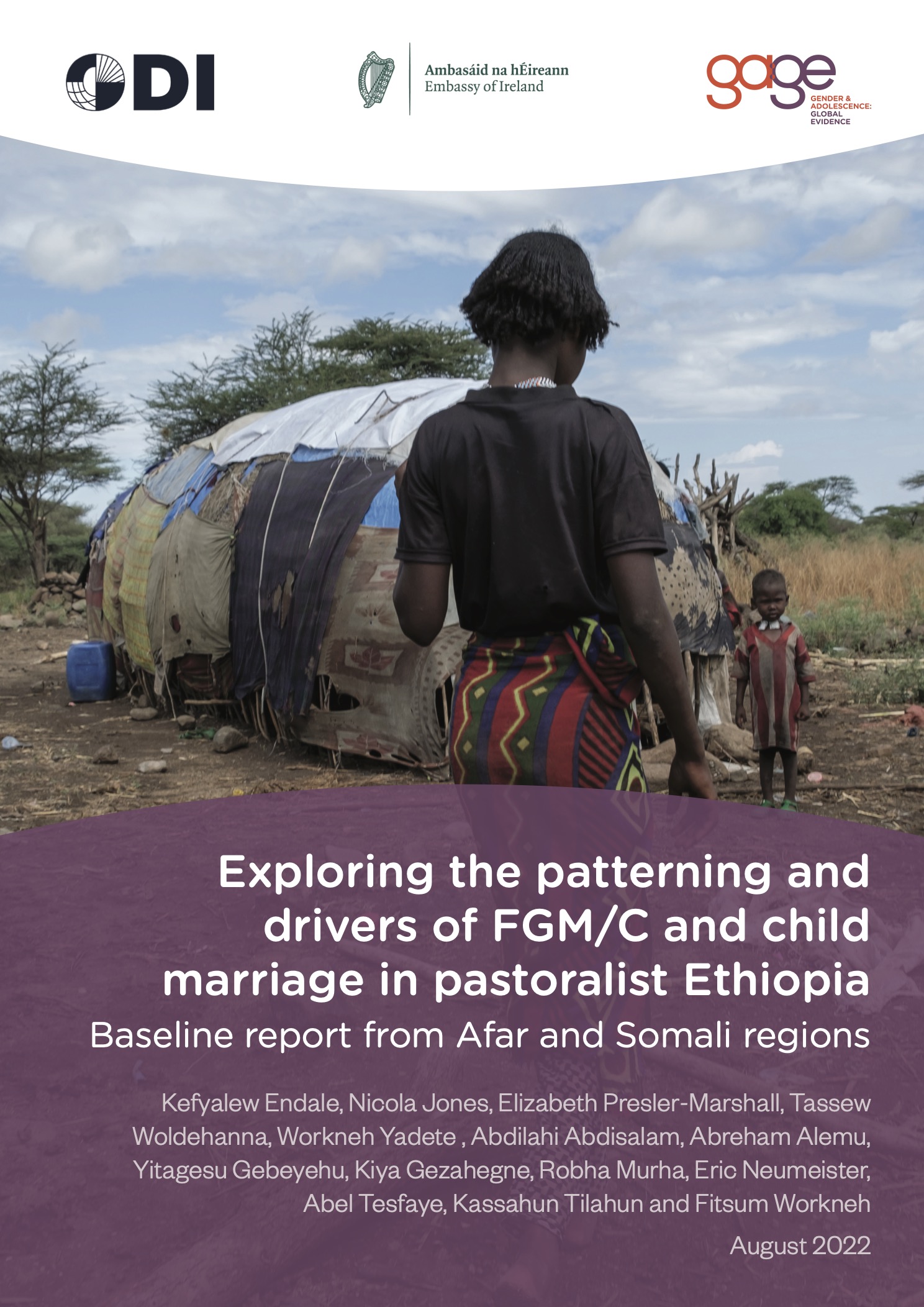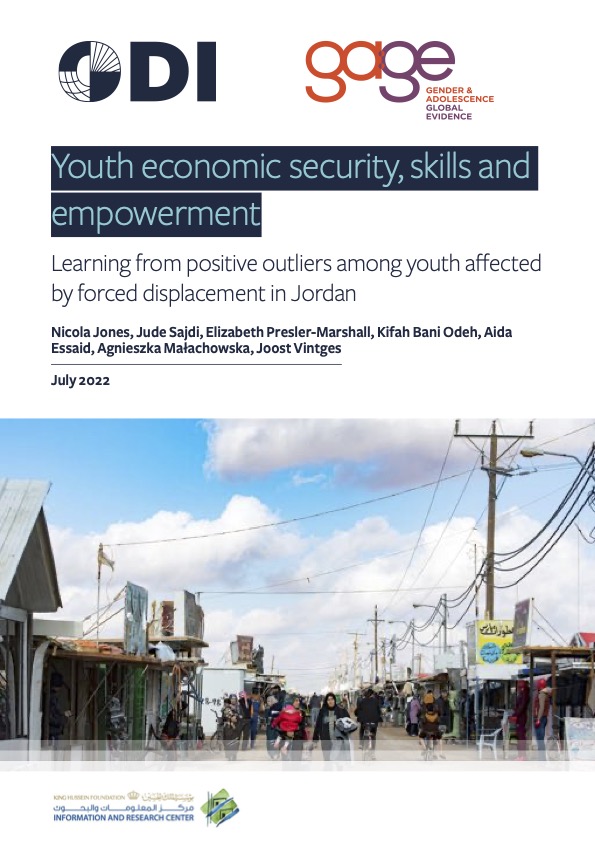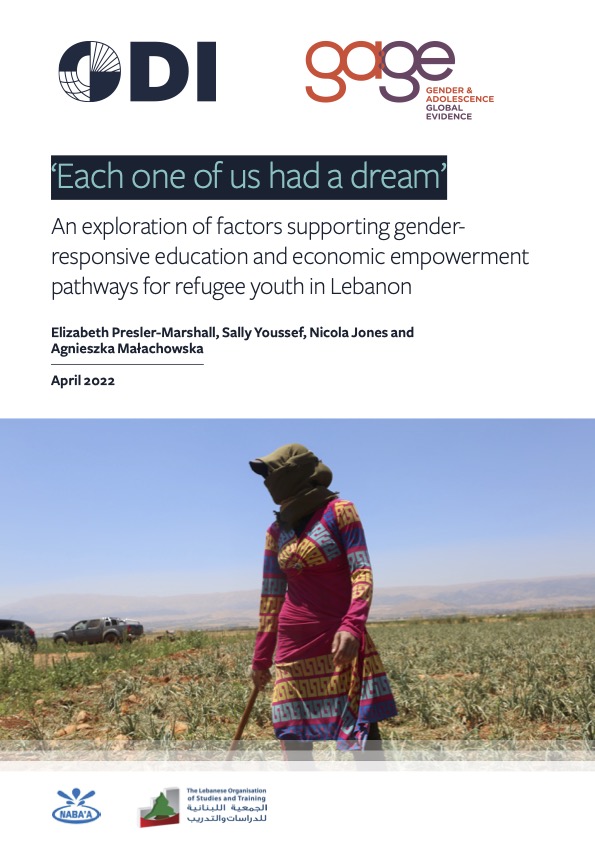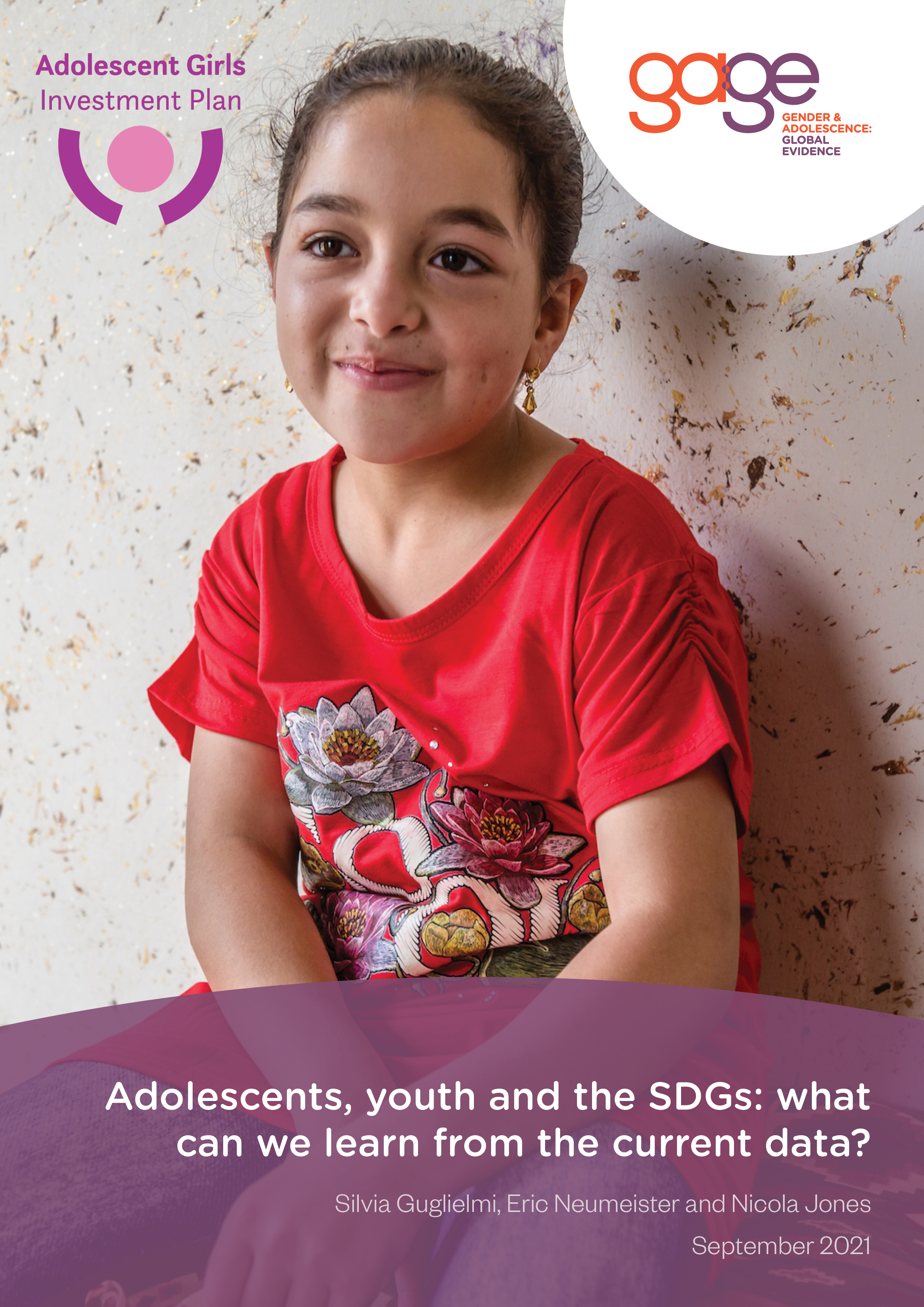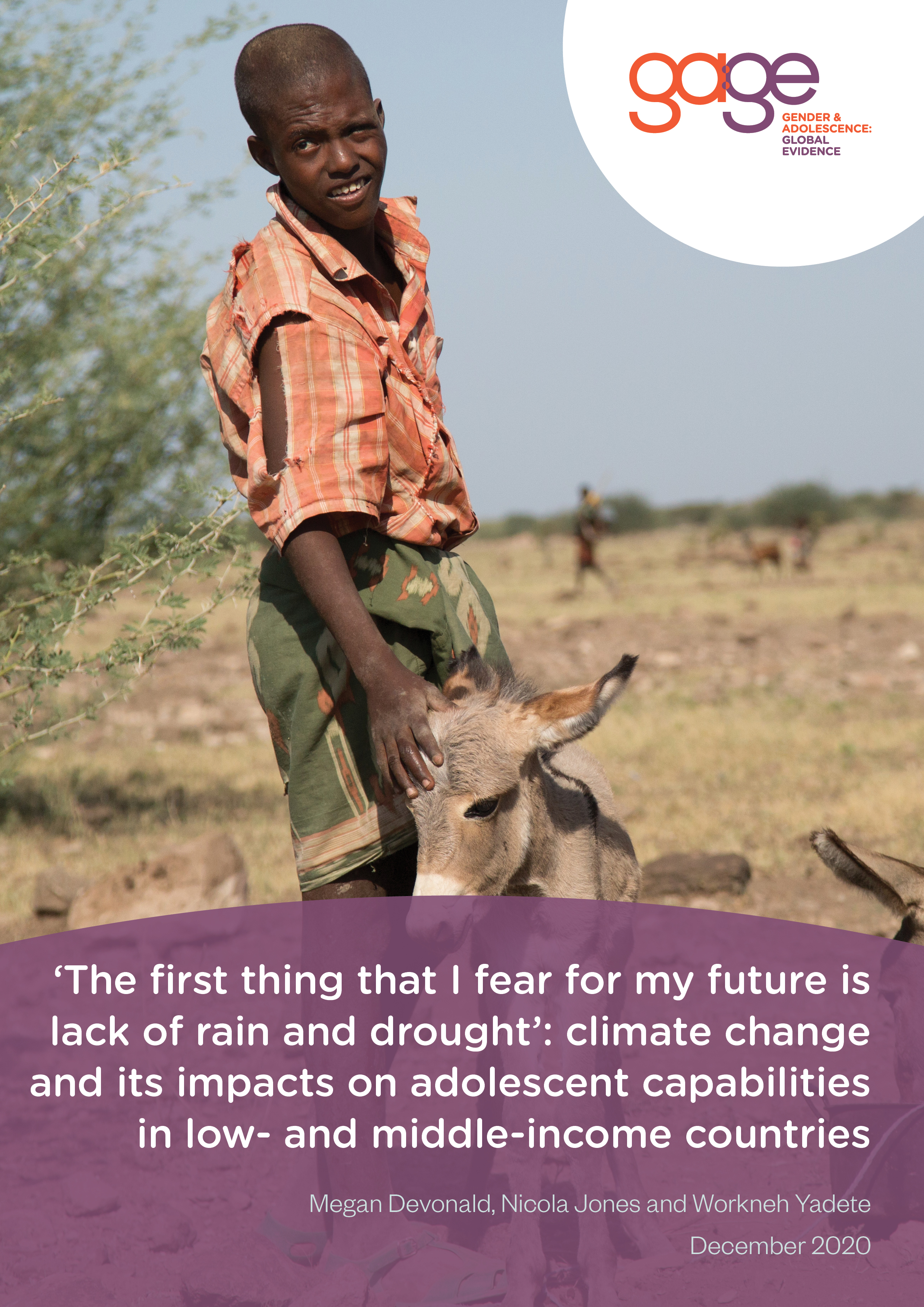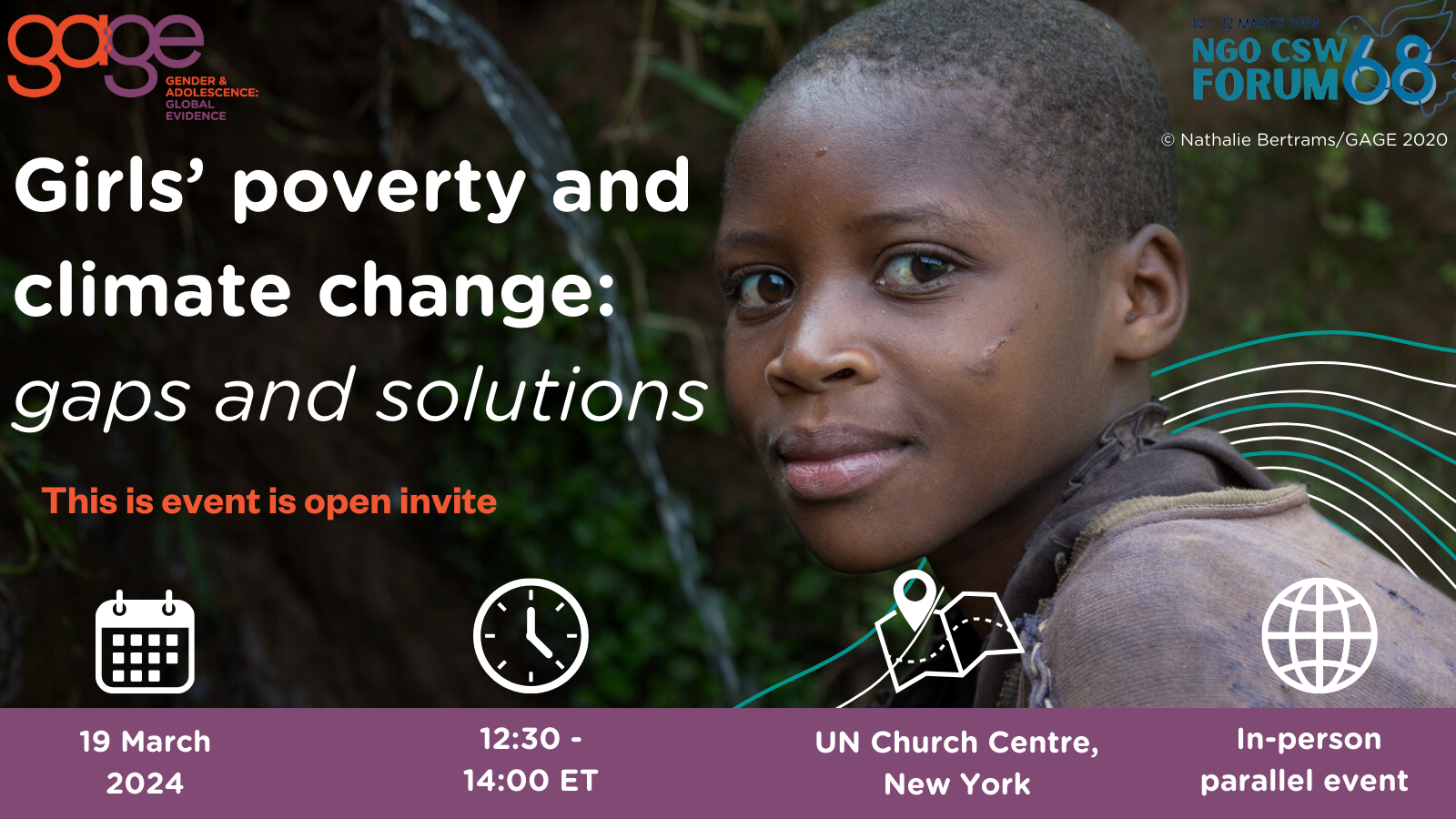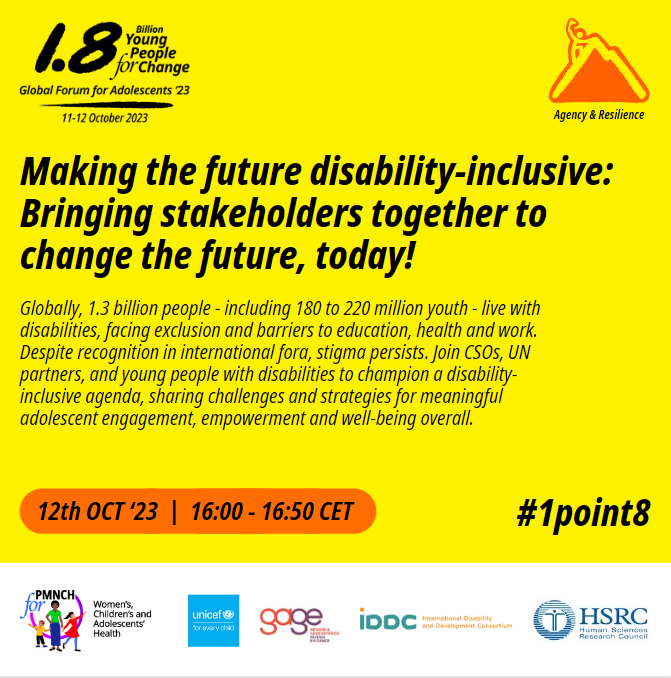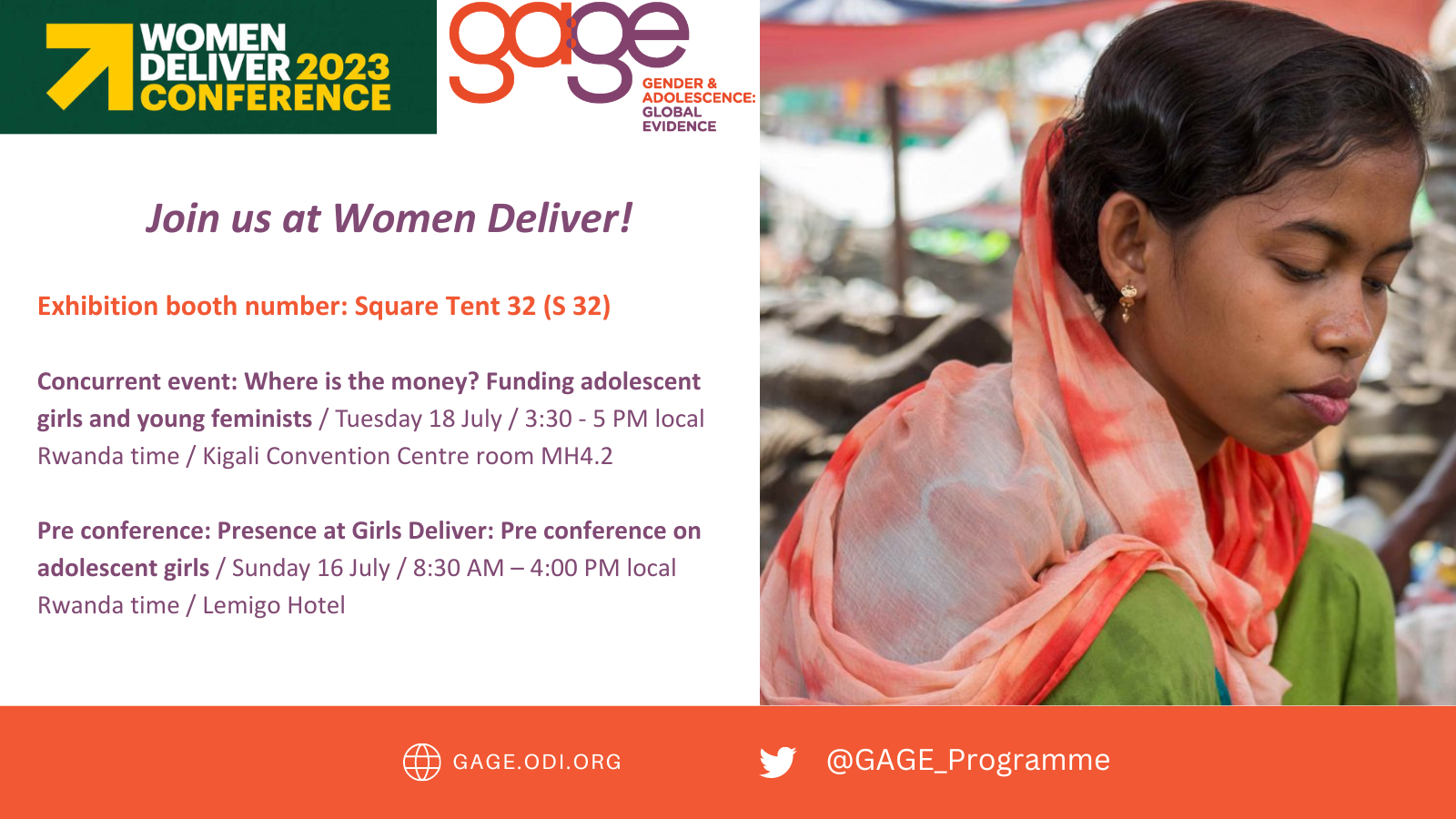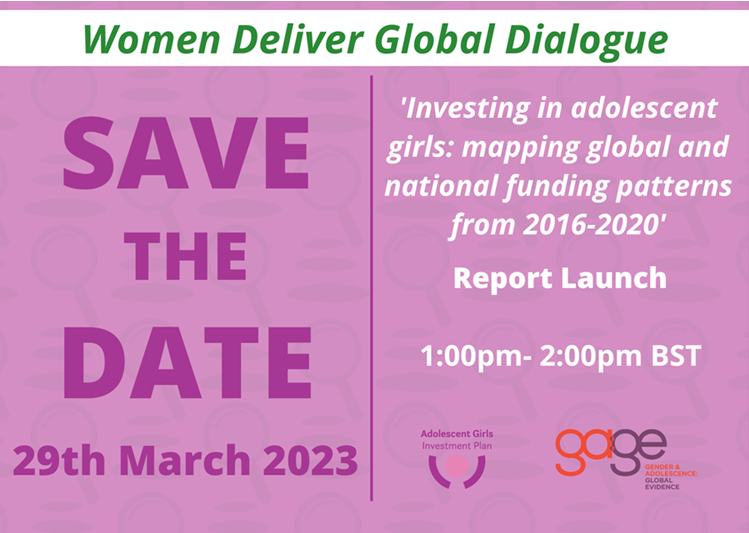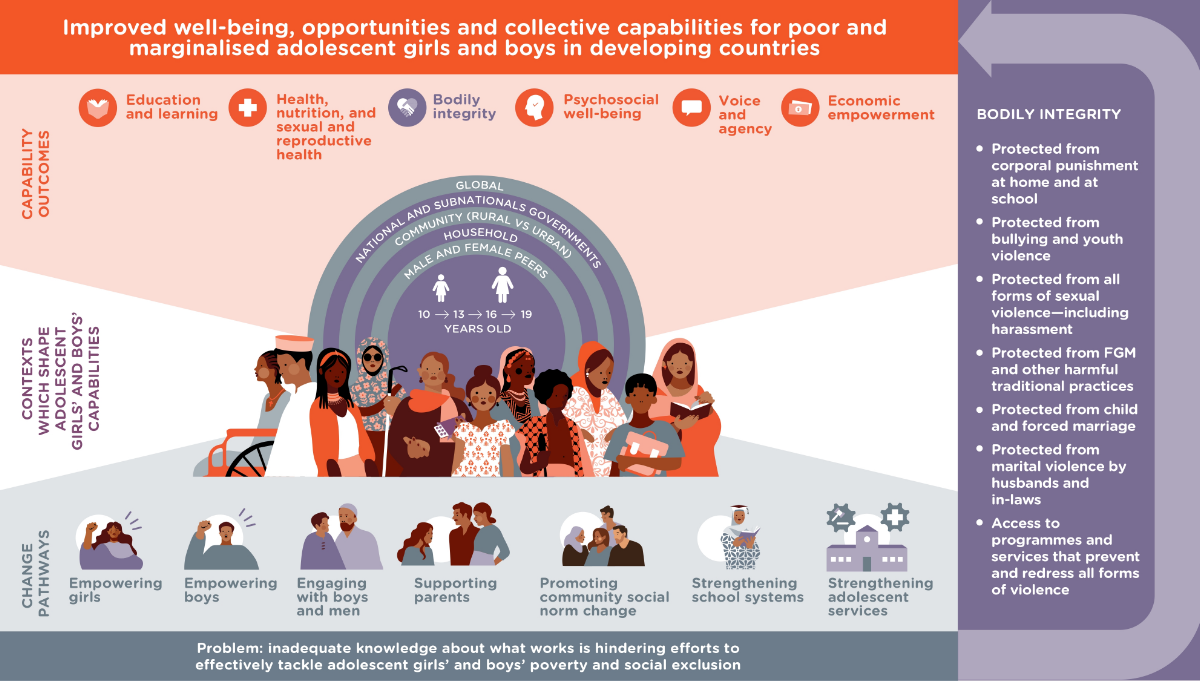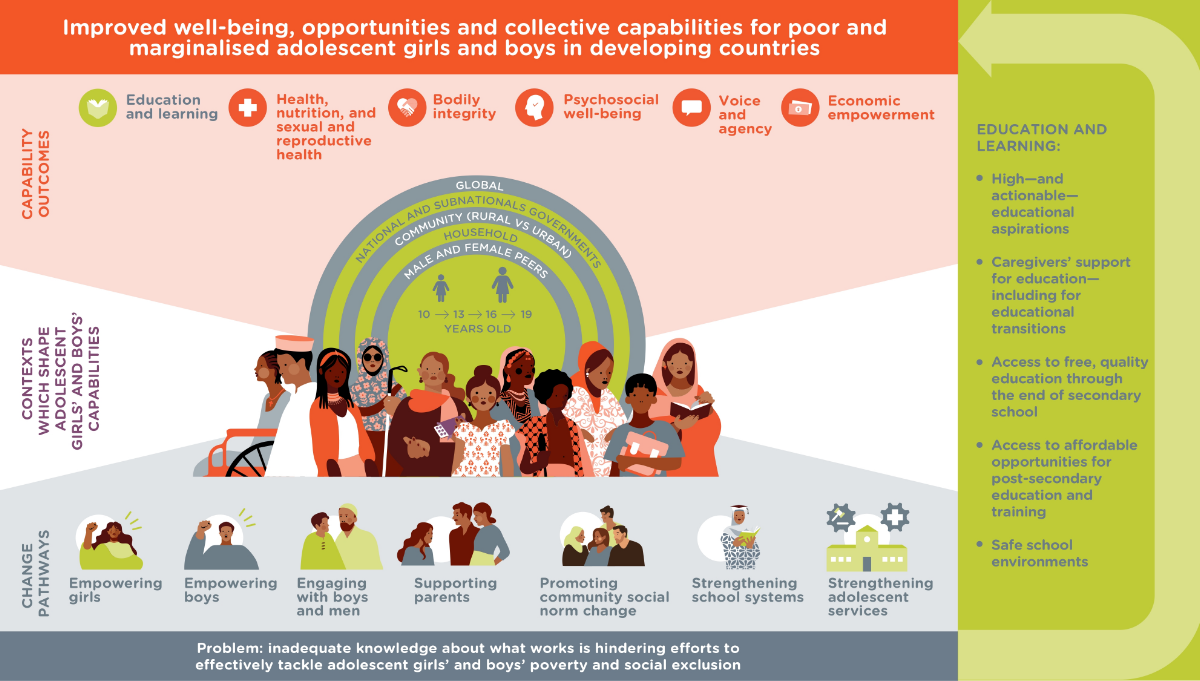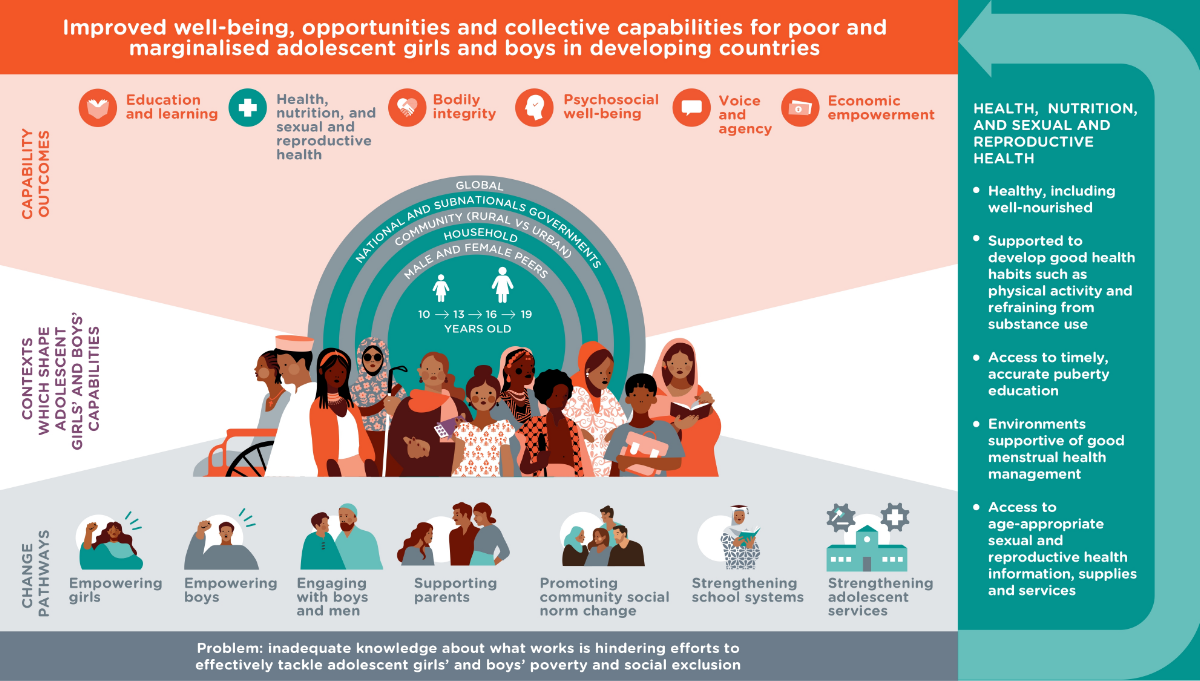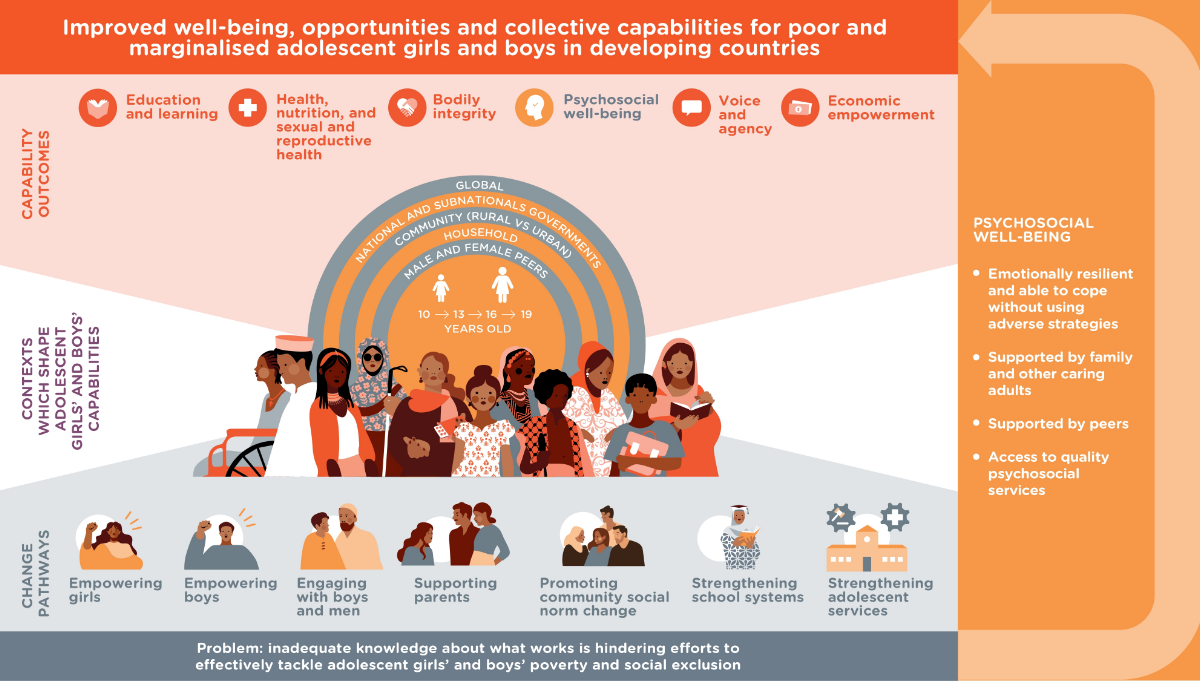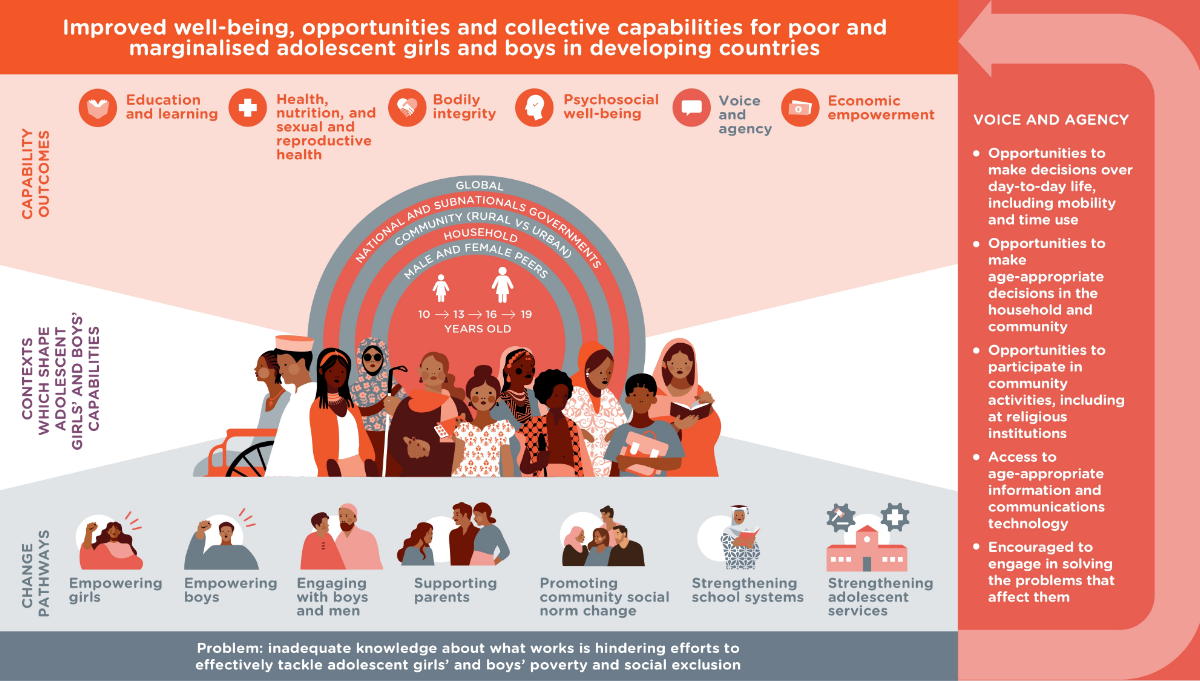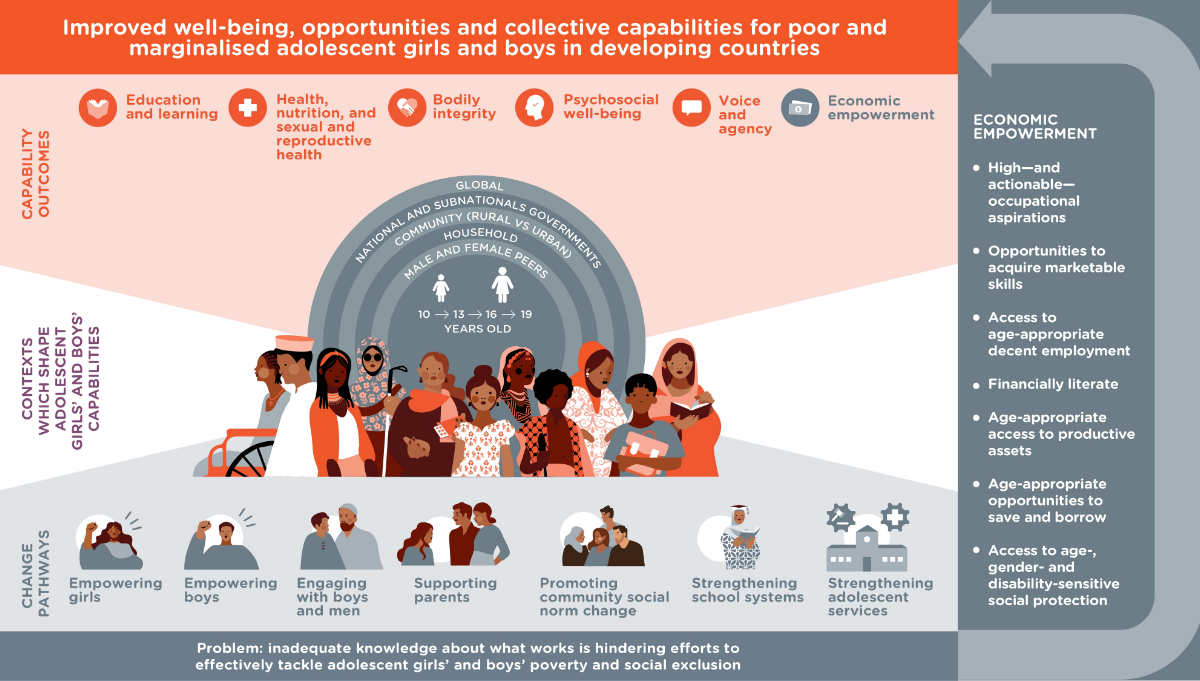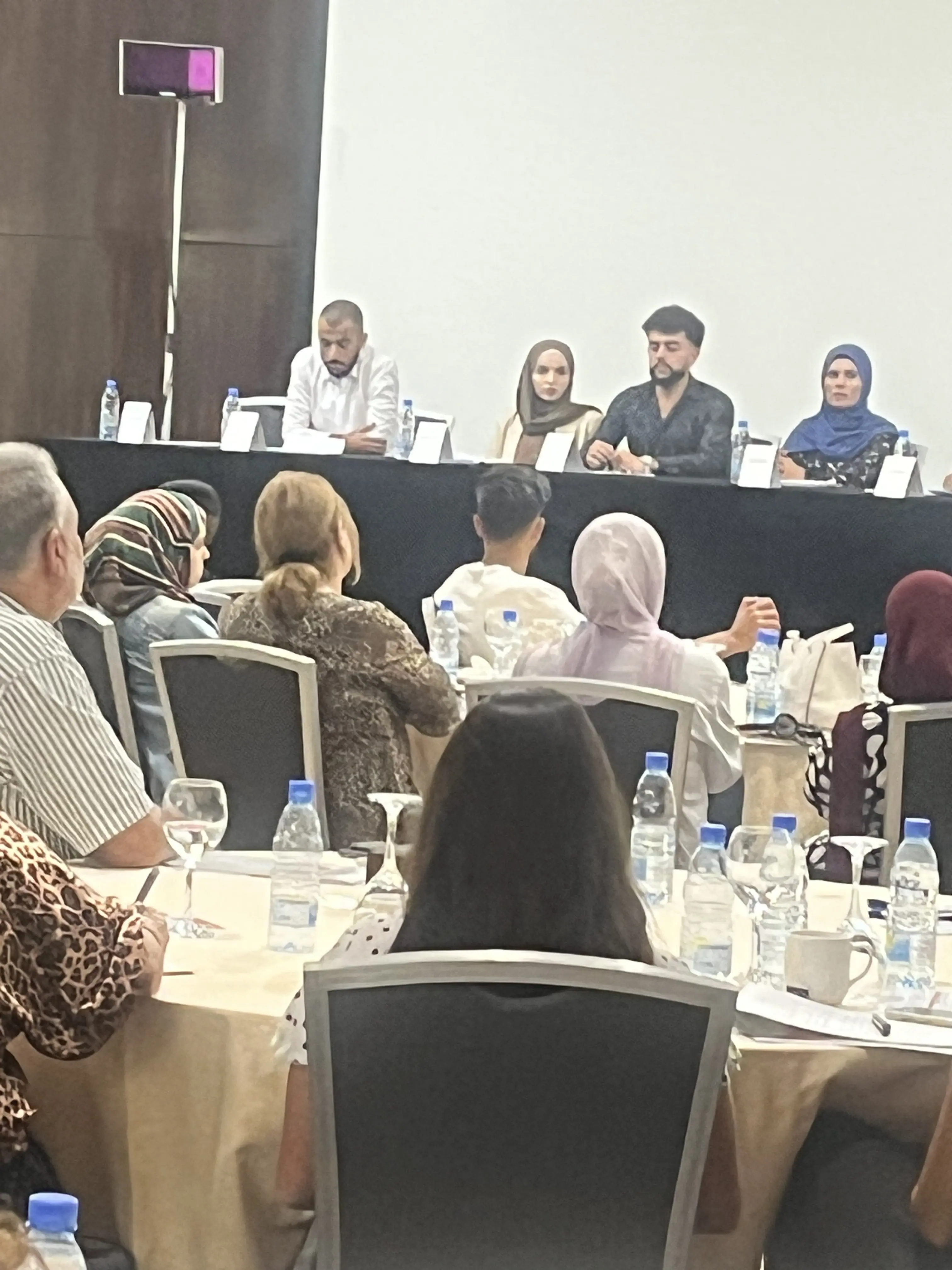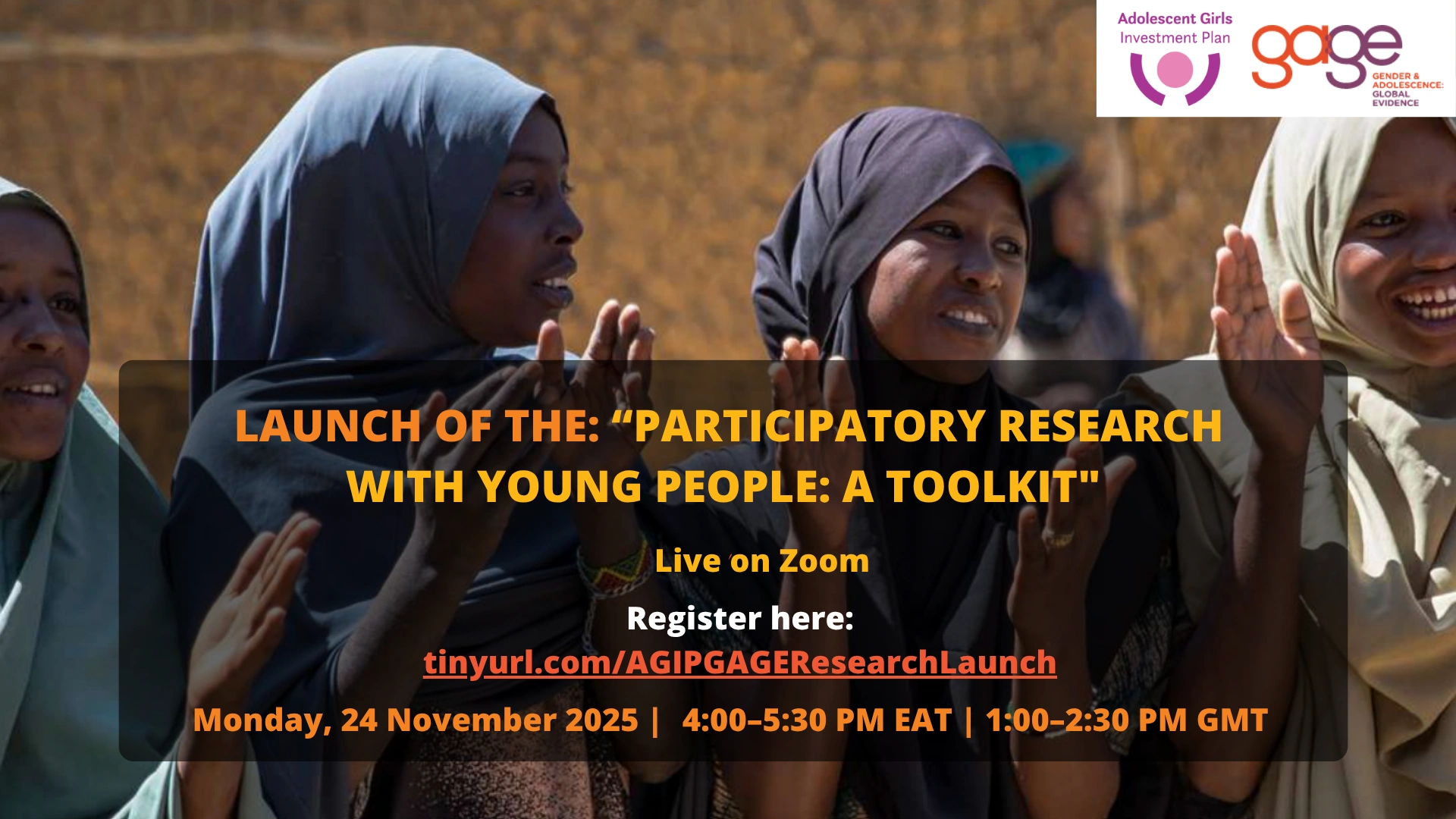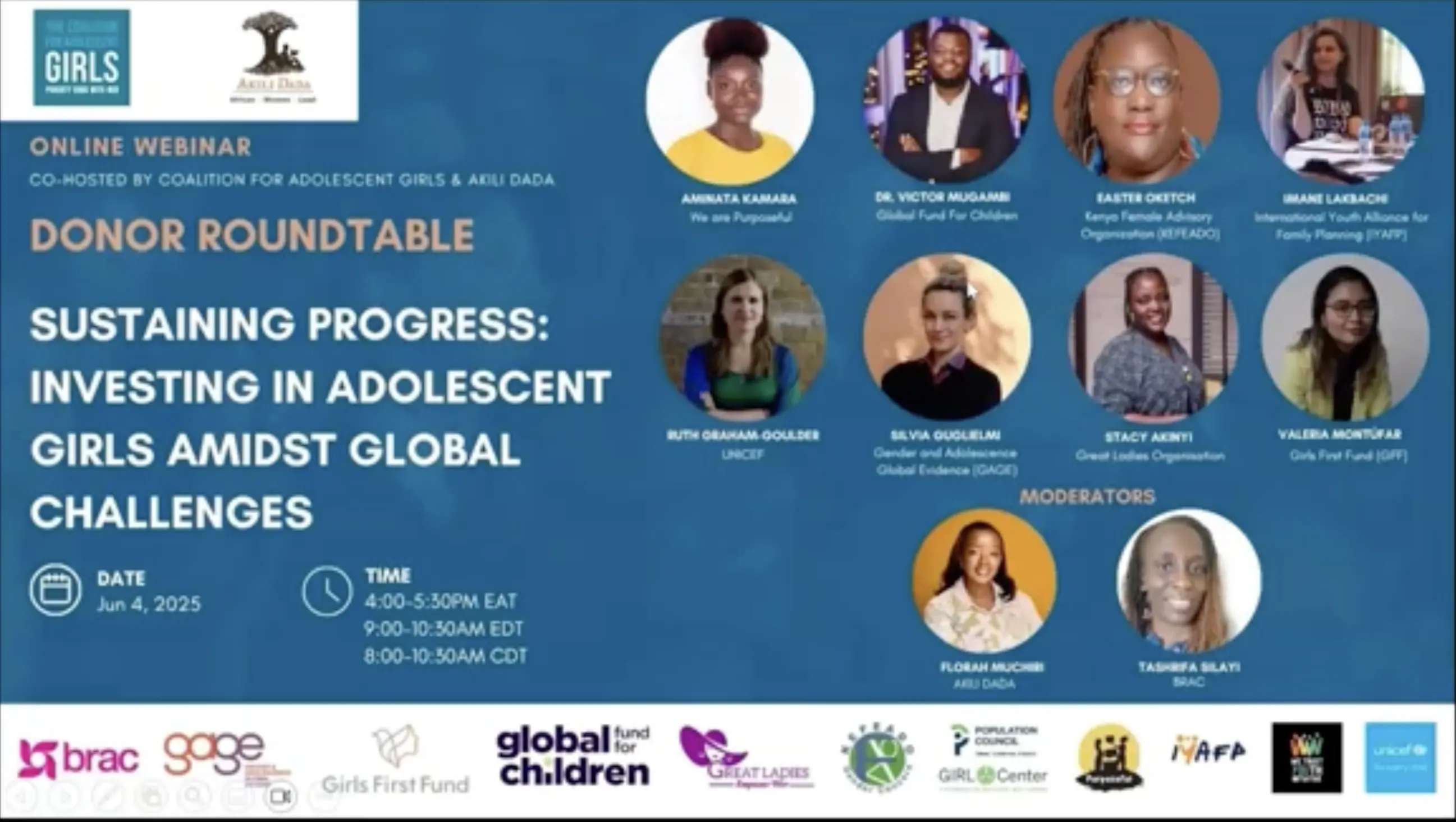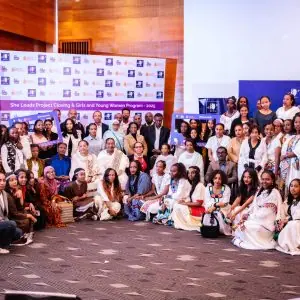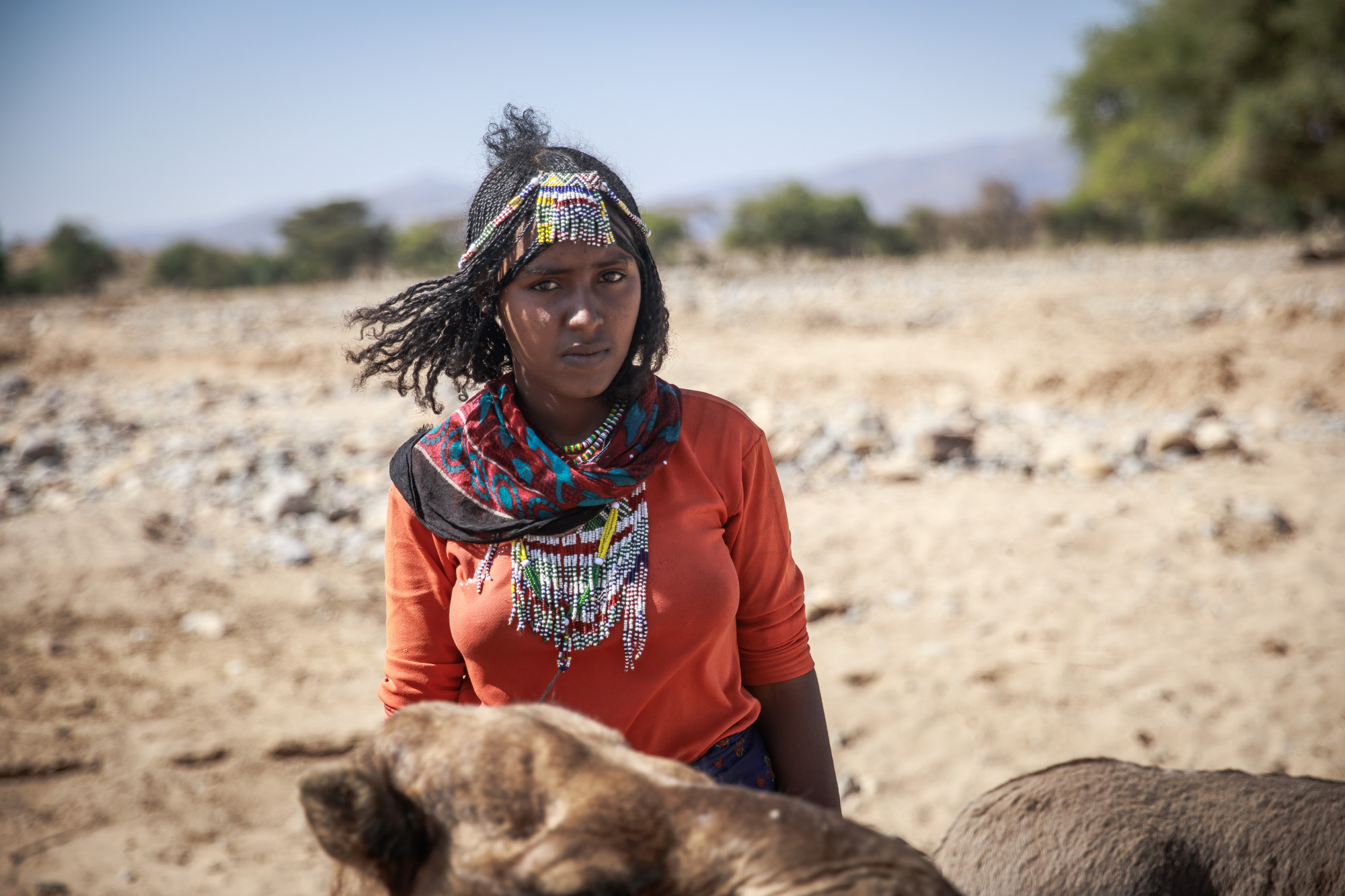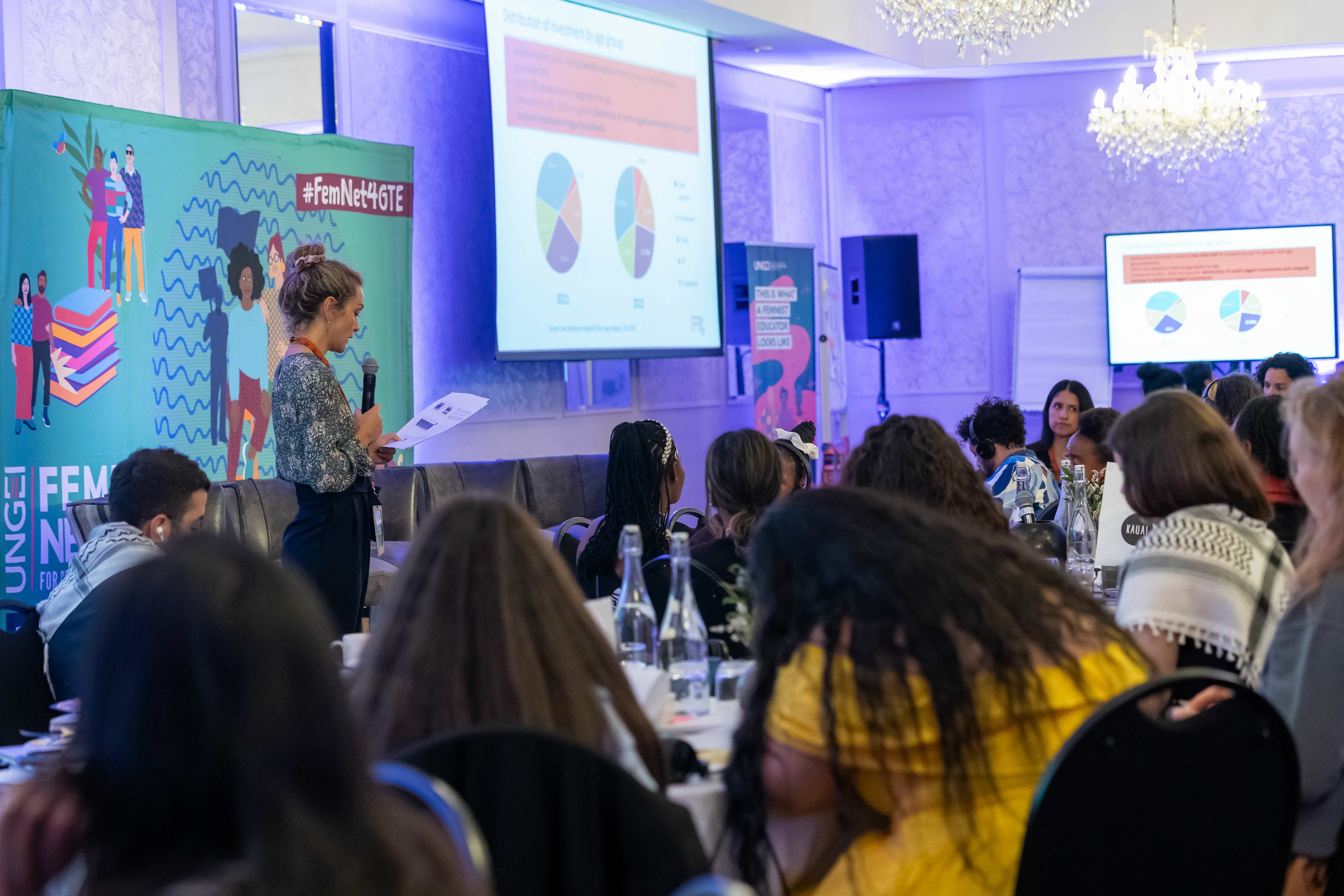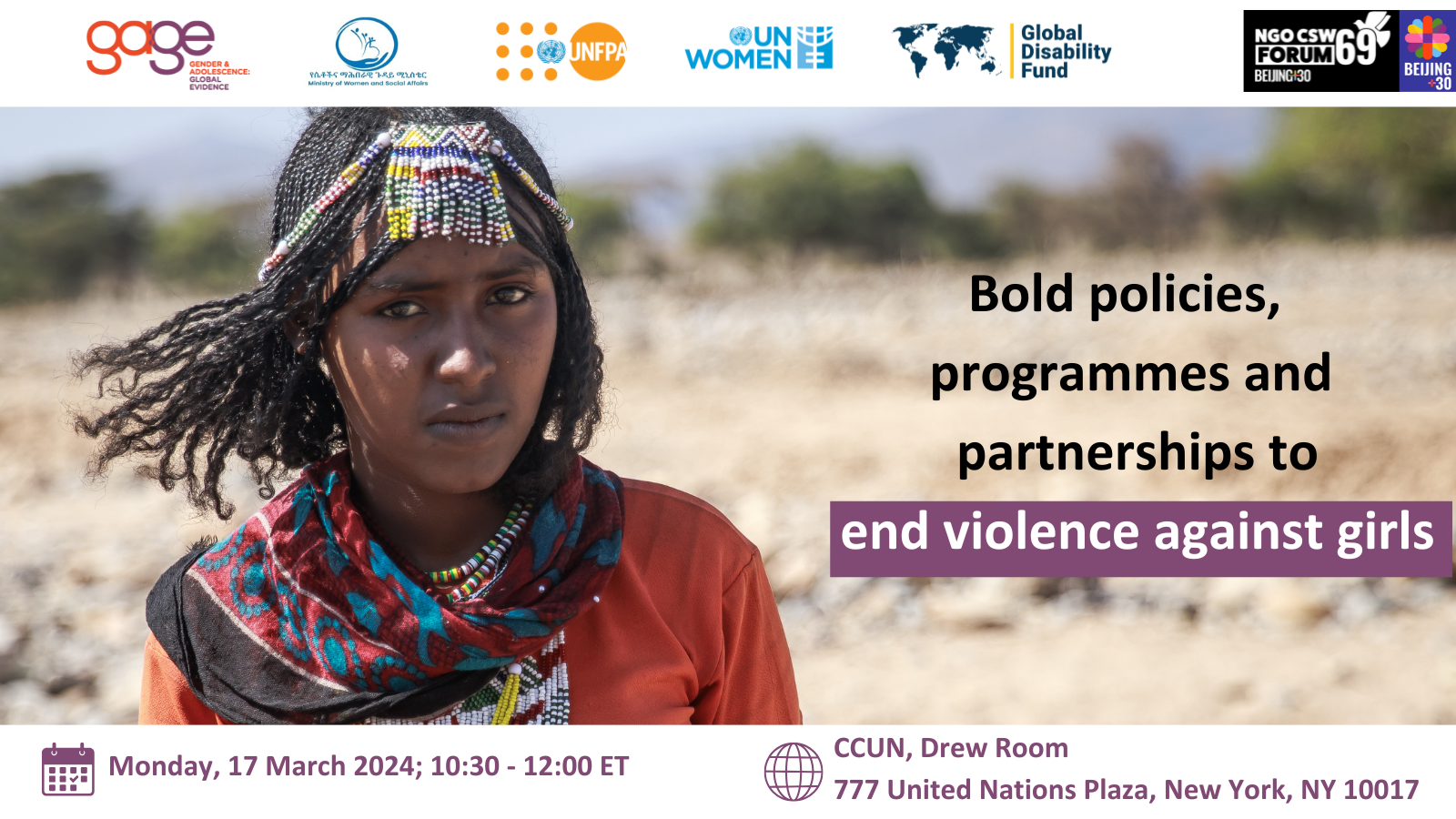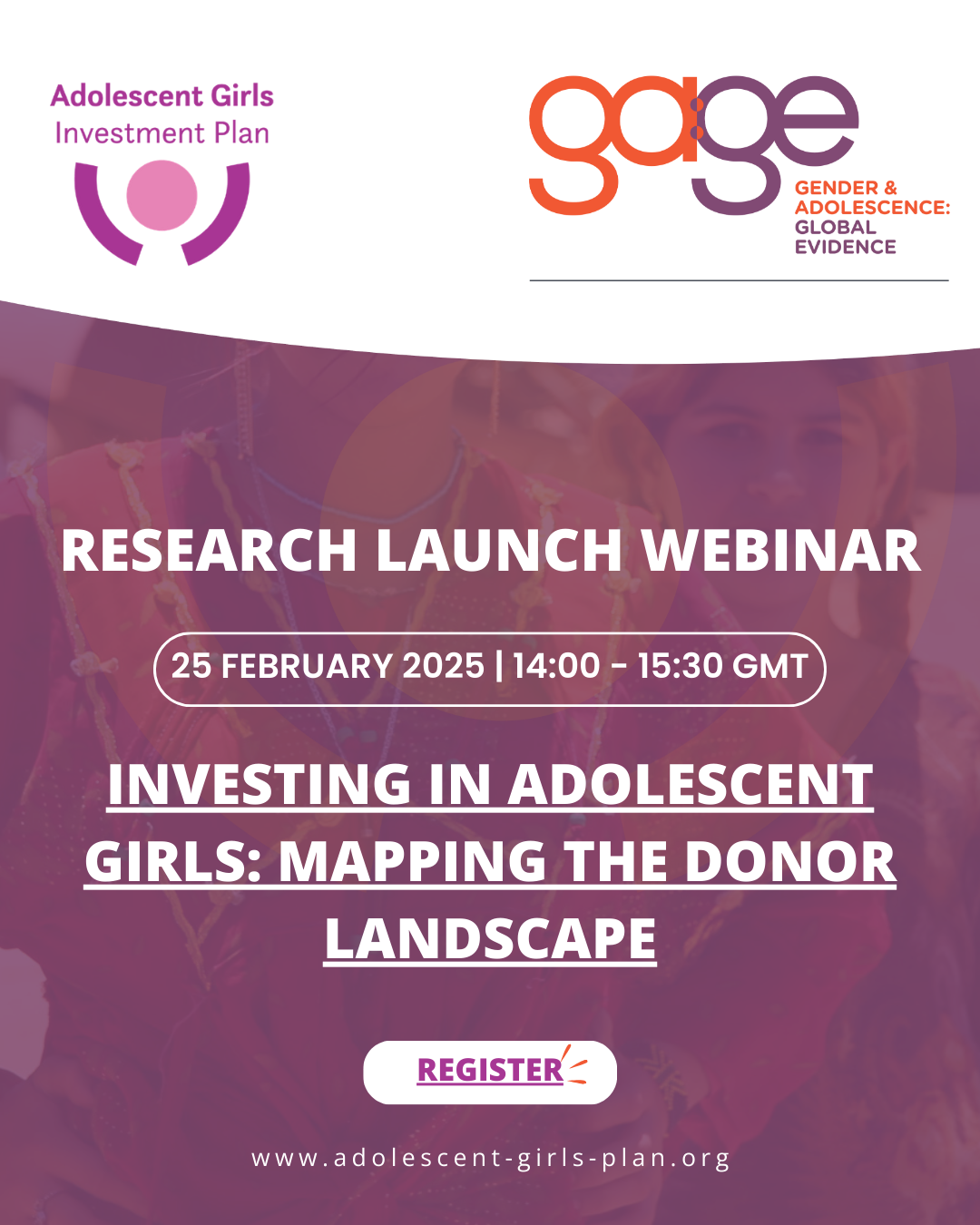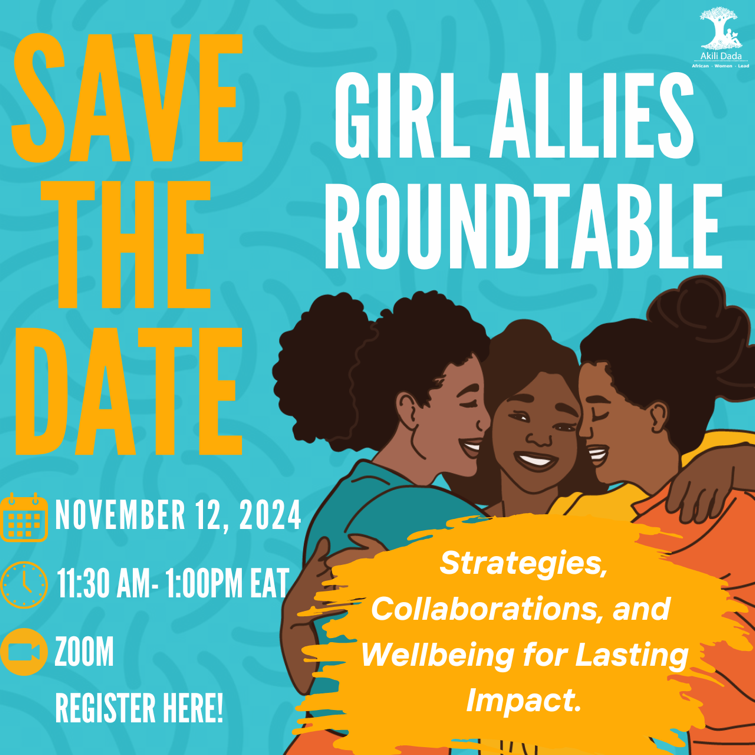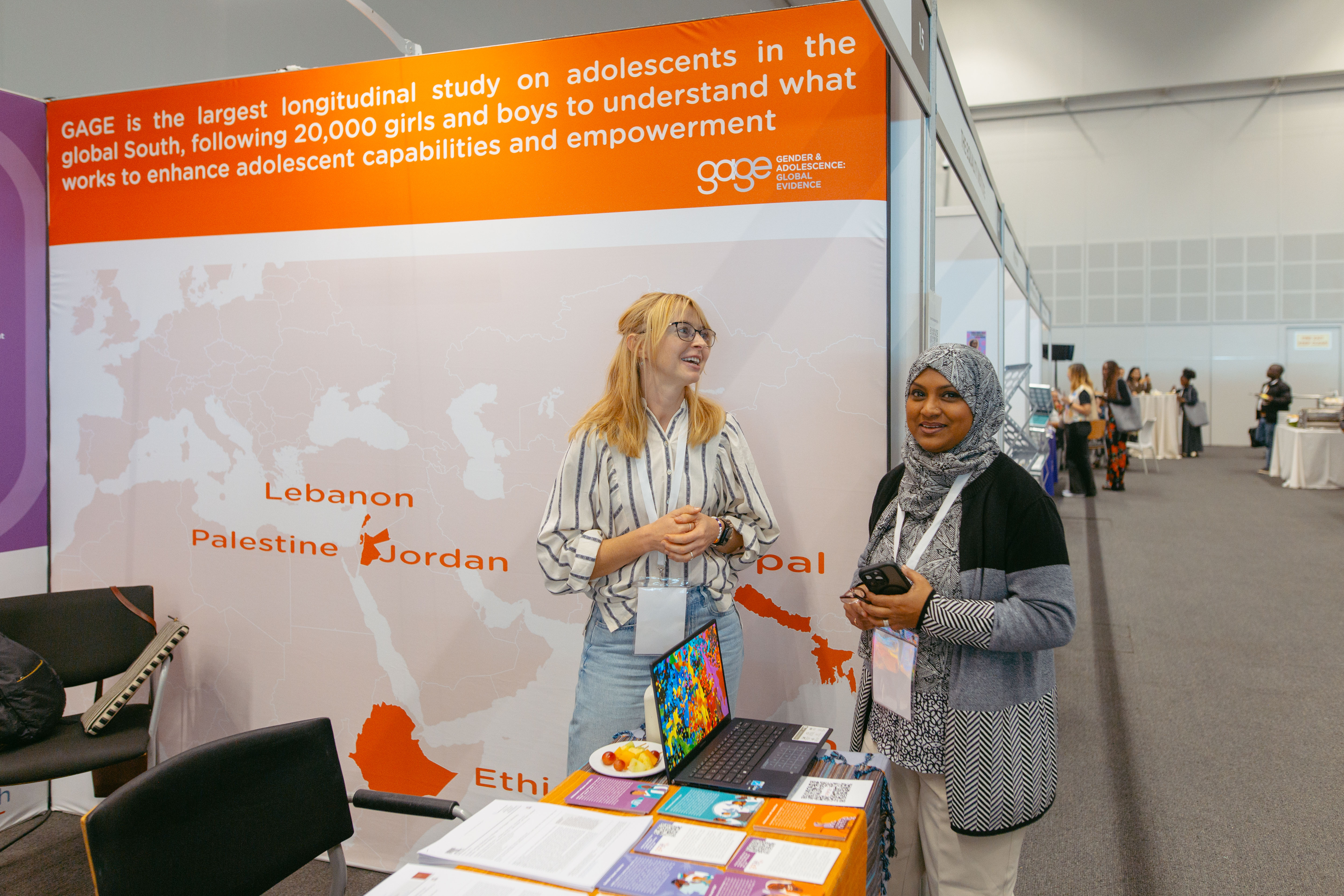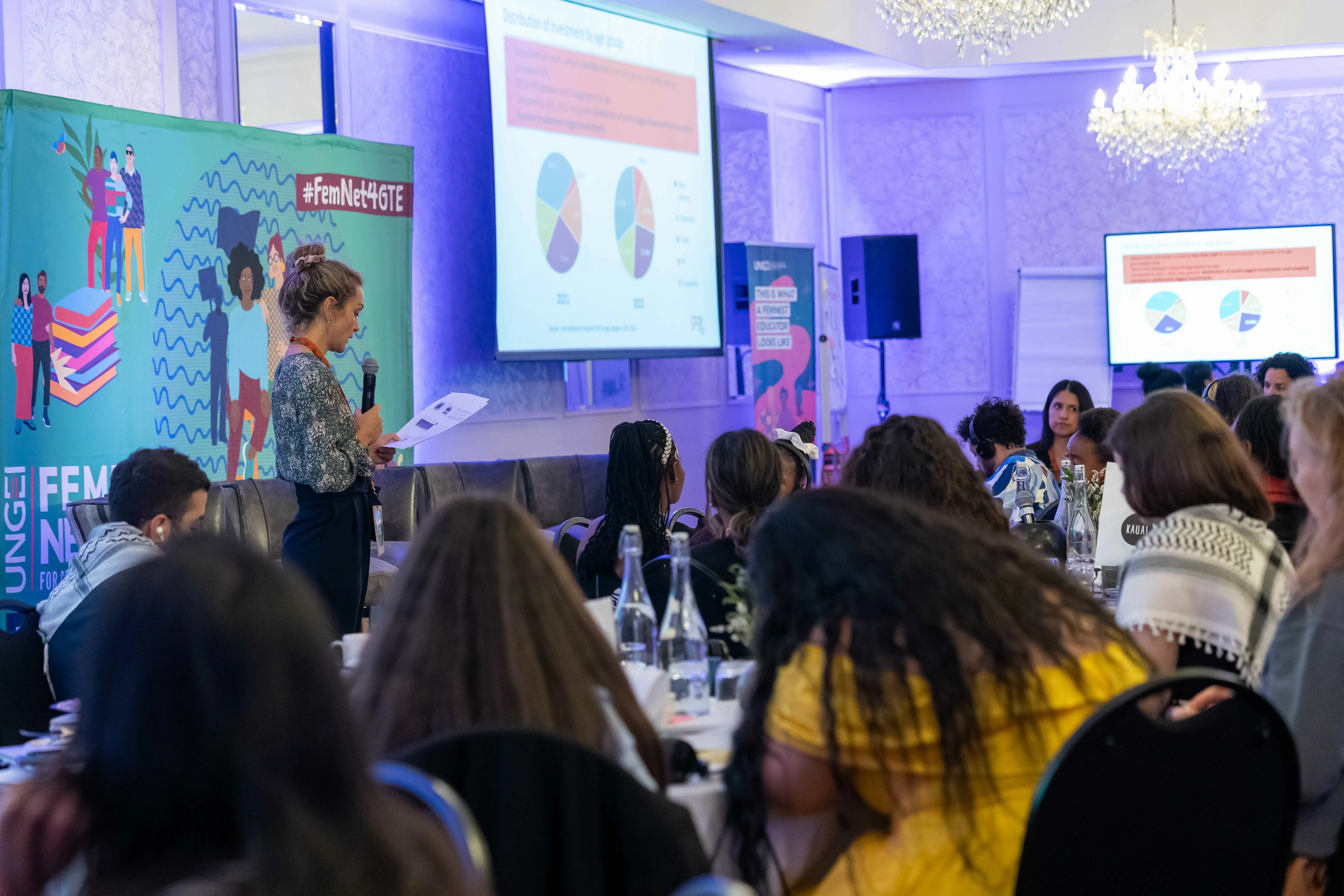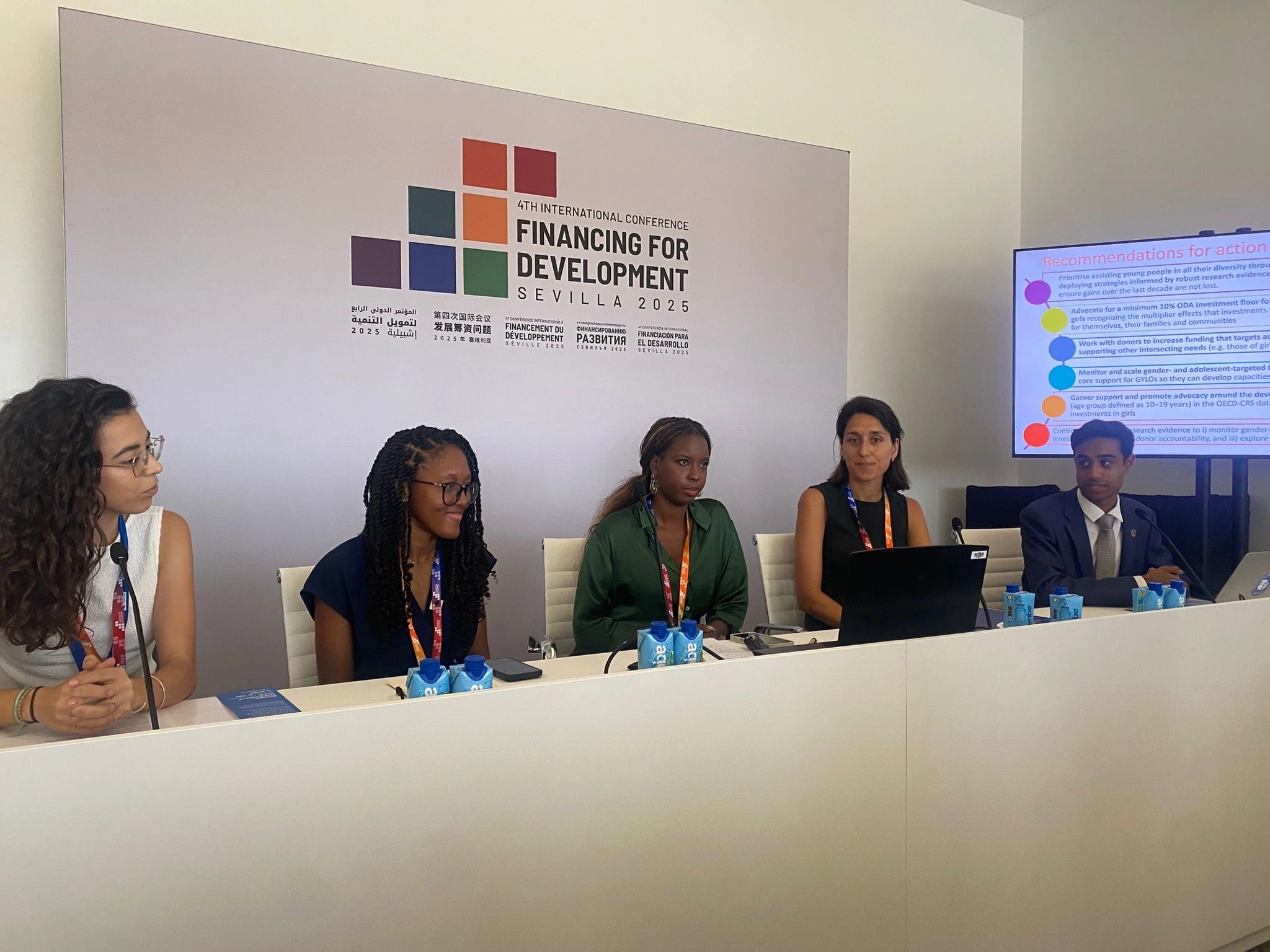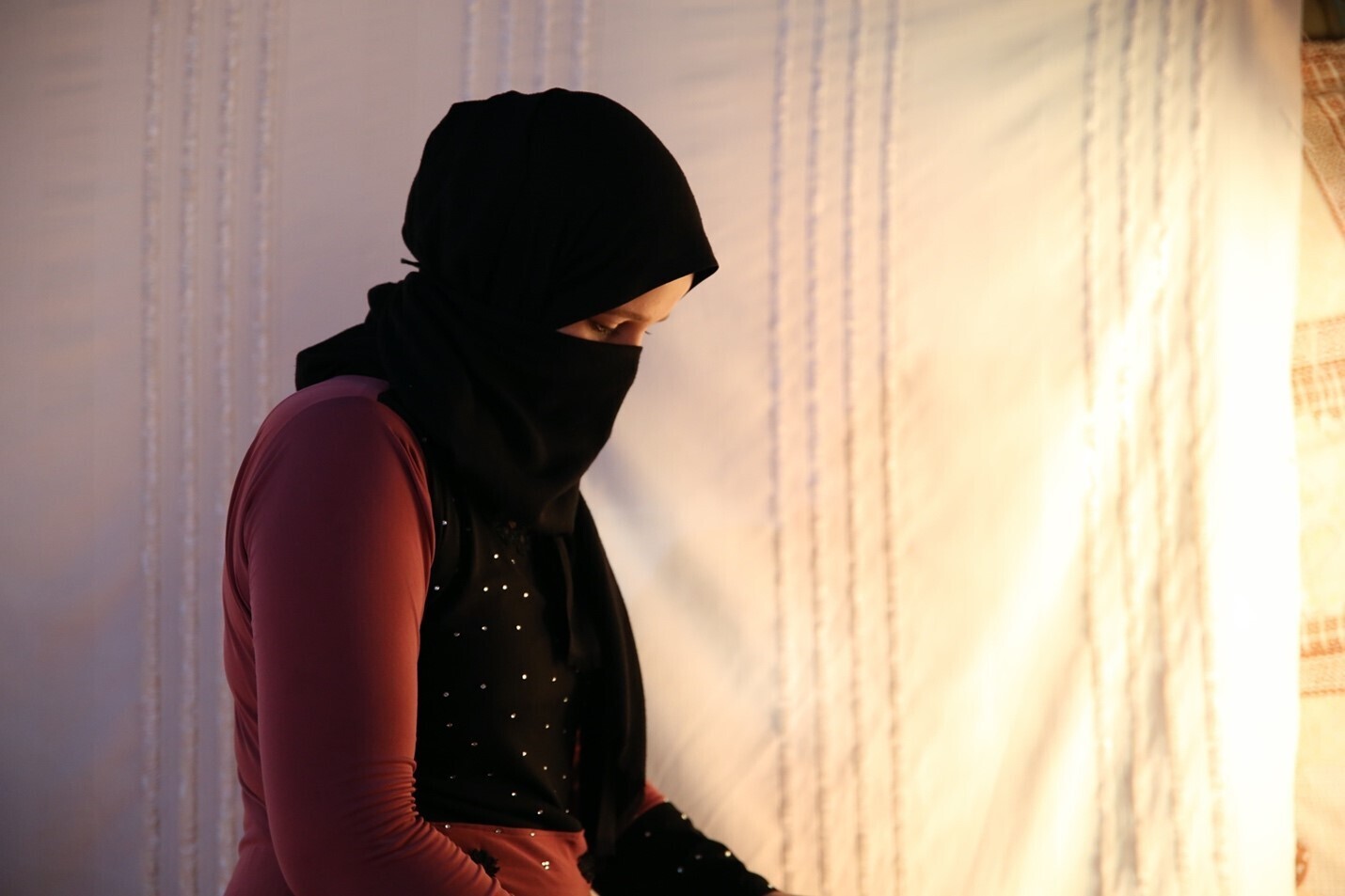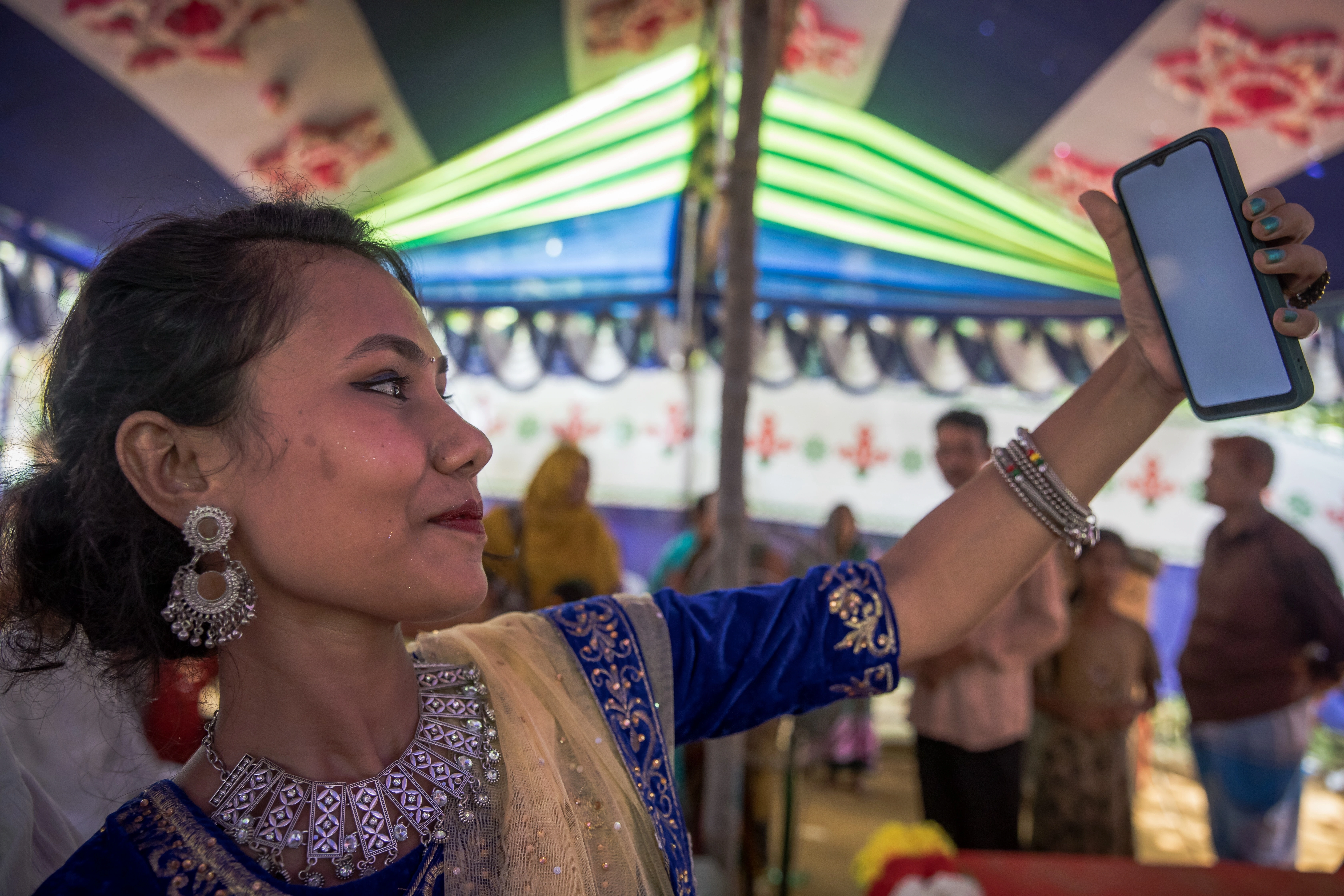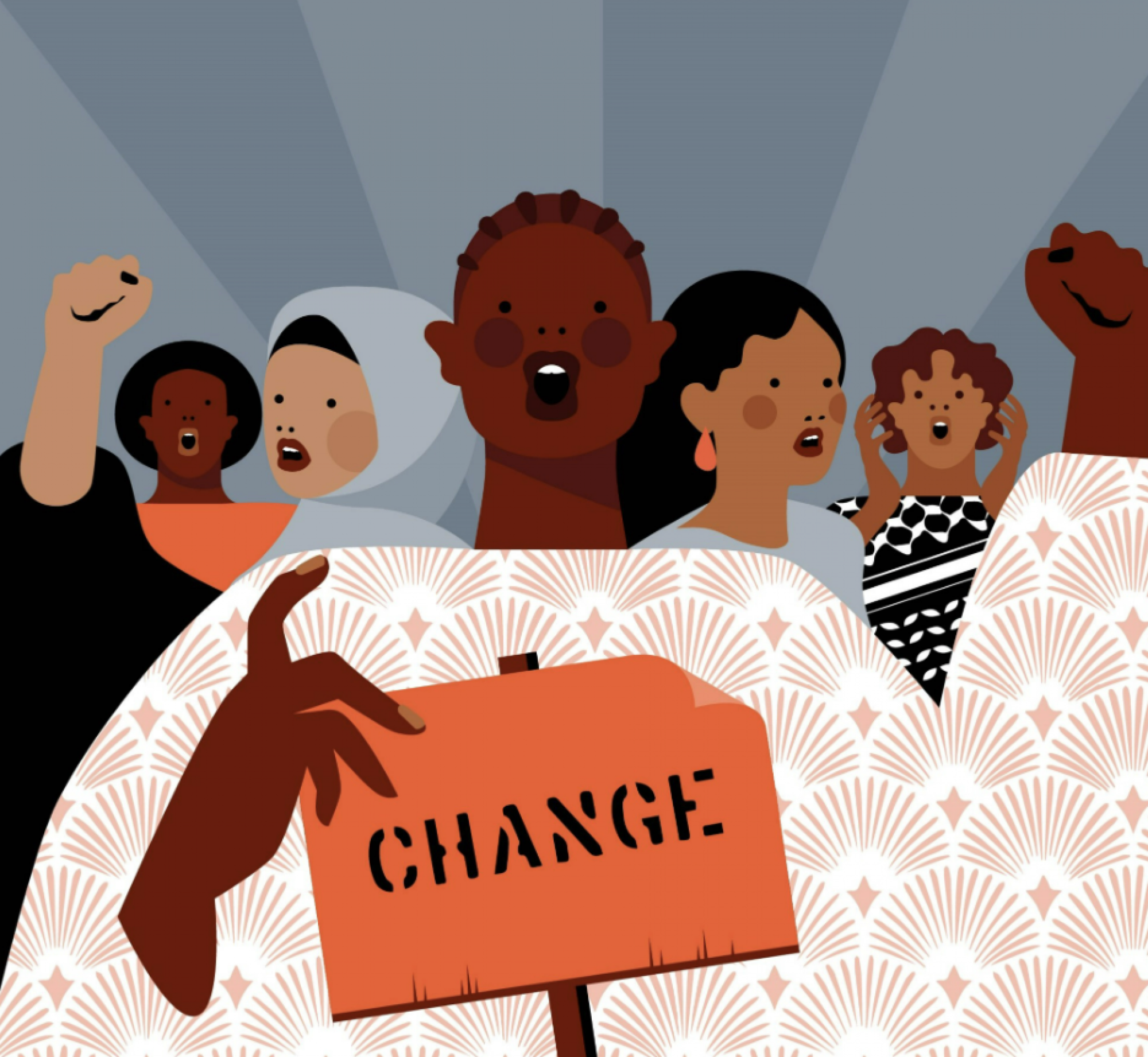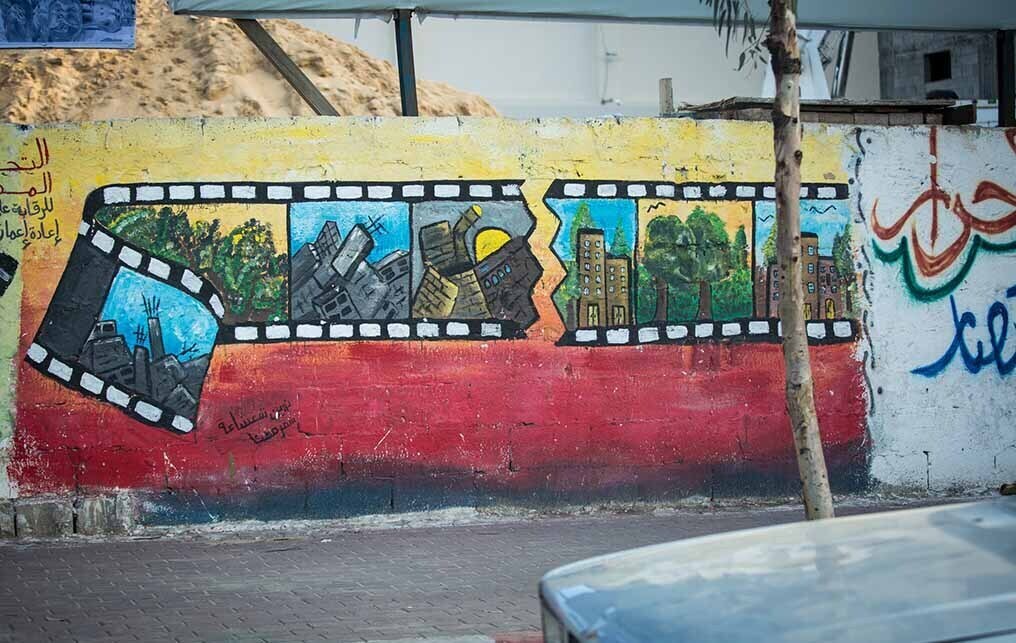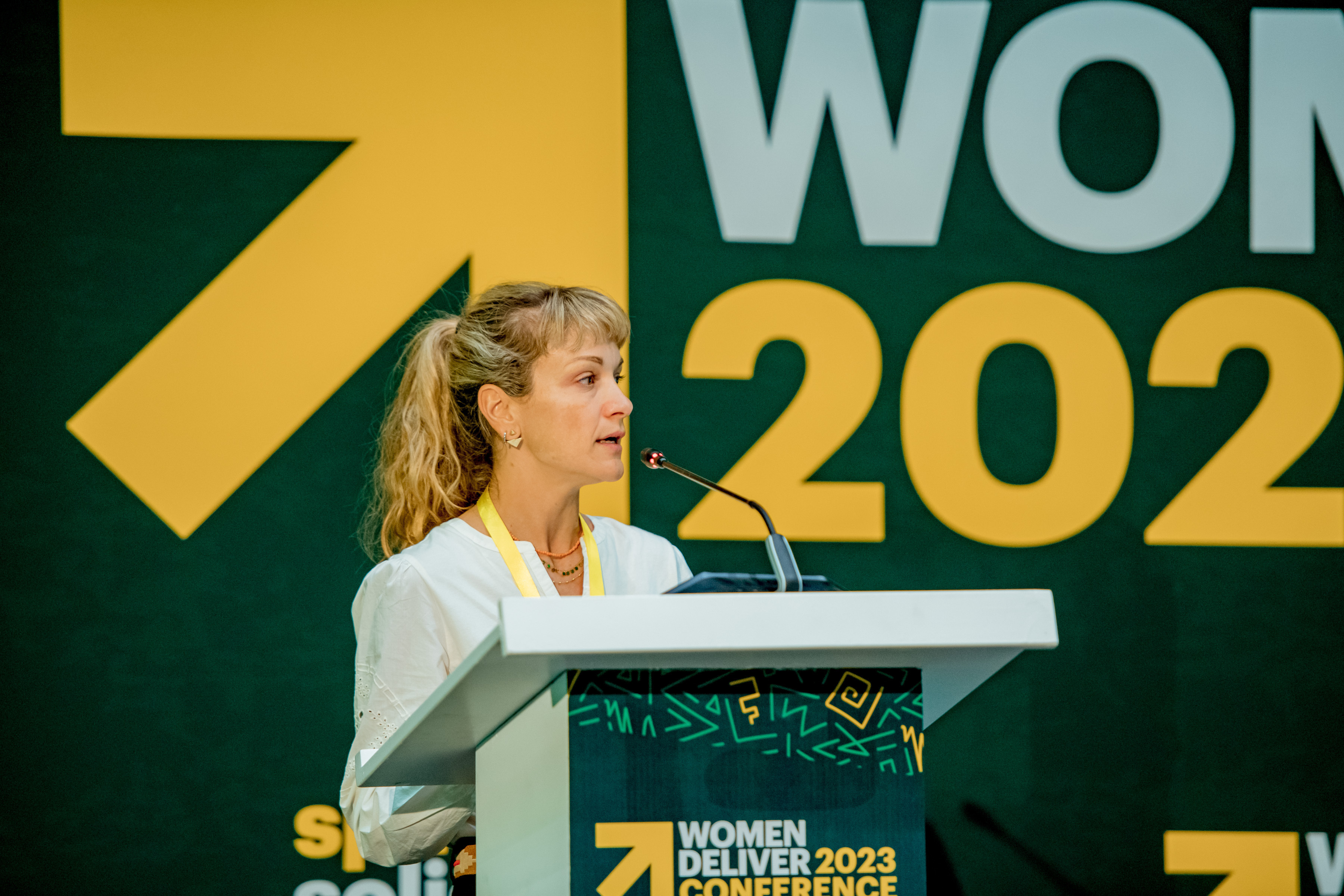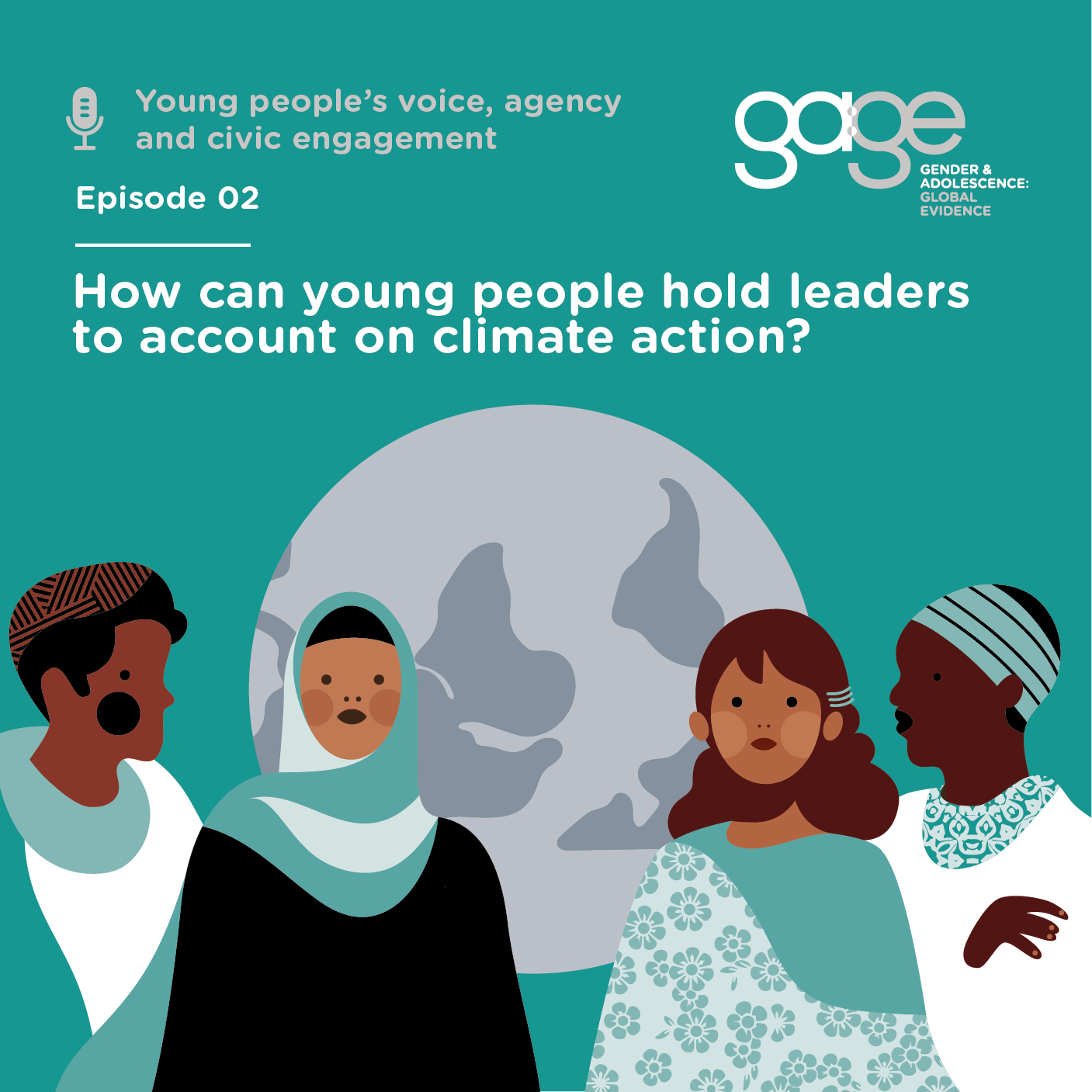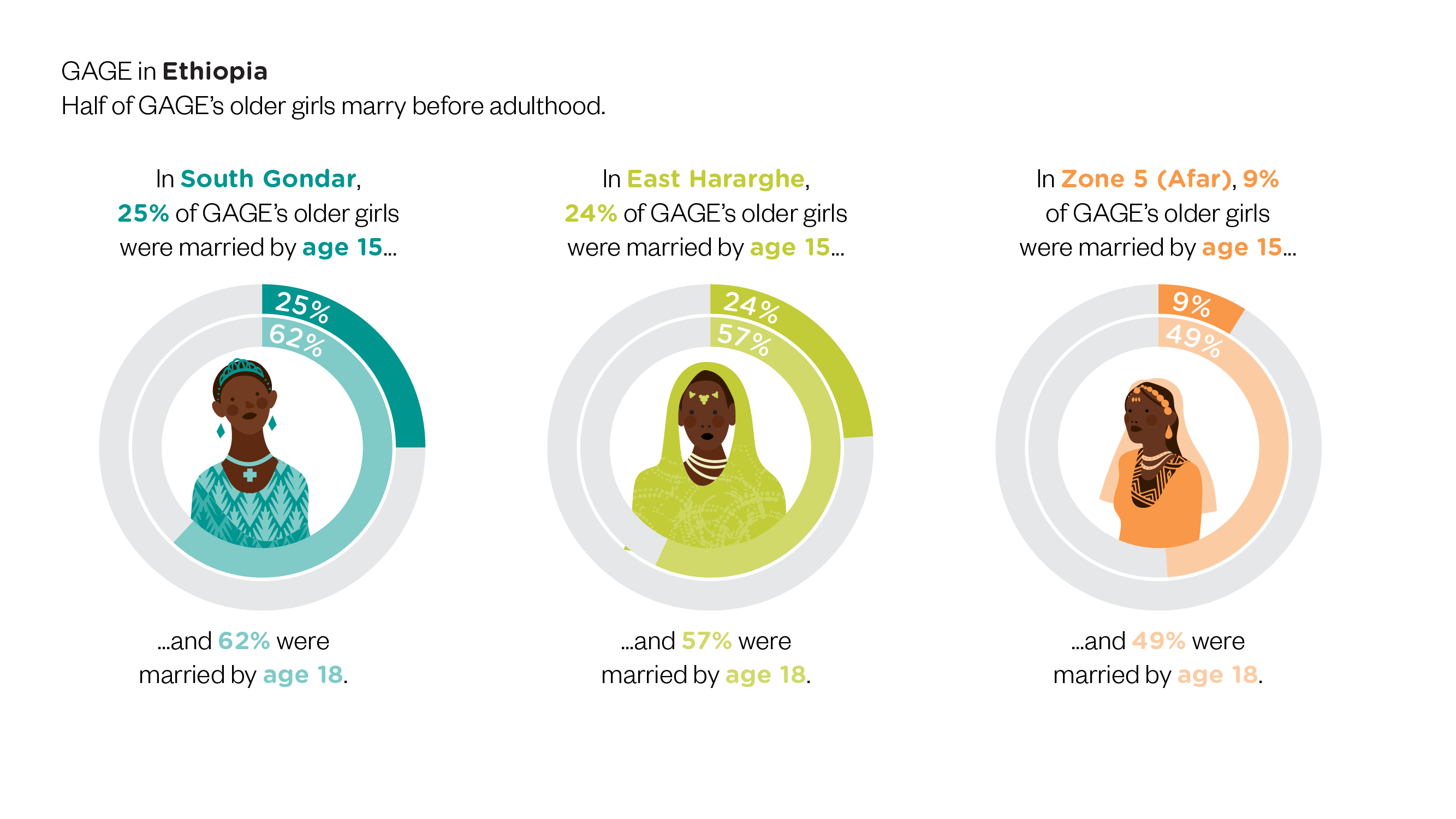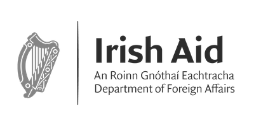In this section, you can find out about GAGE’s work in alignment with global and country-level policy processes, as well as work conducted with a wide range of donors active in funding adolescent-relevant evidence generation.
You can also read more about how GAGE’s conceptual framework and study design intersect with policy processes, donor strategies and investment frameworks that target and advance adolescent girls’ and boys’ well-being.

Conceptual framework and study design
The GAGE conceptual framework pays attention to the dynamic interactions that shape adolescent outcomes and gendered experiences. Adopting mixed-methods and longitudinal research design, GAGE is positioned to understand adolescent experiences and perspectives across six core capability domains: education and learning; bodily integrity and freedom from violence; health, nutrition, and sexual and reproductive health and rights; psychosocial well-being; voice and agency; and economic empowerment.
Through a wide network of global, regional and national-level partnerships, GAGE’s work aligns with country-specific and global policy priorities and donor frameworks that can drive the allocation of financial and human resources to advance adolescent well-being at scale. To achieve this, GAGE work intersects with the Sustainable Development Goals (SDGs) and the Global Compact on Refugees by investigating the extent of adolescent visibility and progress across global indicators, and the extent to which adolescent girls’ and boys’ experiences are usefully disaggregated and reported.
GAGE also collaborates extensively with policy-makers aligned with operationalising Agenda 2030, including through the UNFPA-UNICEF Global Programme to End Child Marriage and the Joint Programme on the Elimination of Female Genital Mutilation. GAGE is a member of the Adolescent Girls Investment Plan (AGIP), a global coalition working to advance the rights and participation of adolescent girls in decisions that affect their lives, including in advocating for increased investment to girl- and youth-led initiatives. Finally, GAGE is increasingly involved in global and country-specific evidence-generation exploring the risks and opportunities faced by young people as a result of the climate crisis, and disseminating research findings to relevant stakeholders active in climate adaptation policy.

